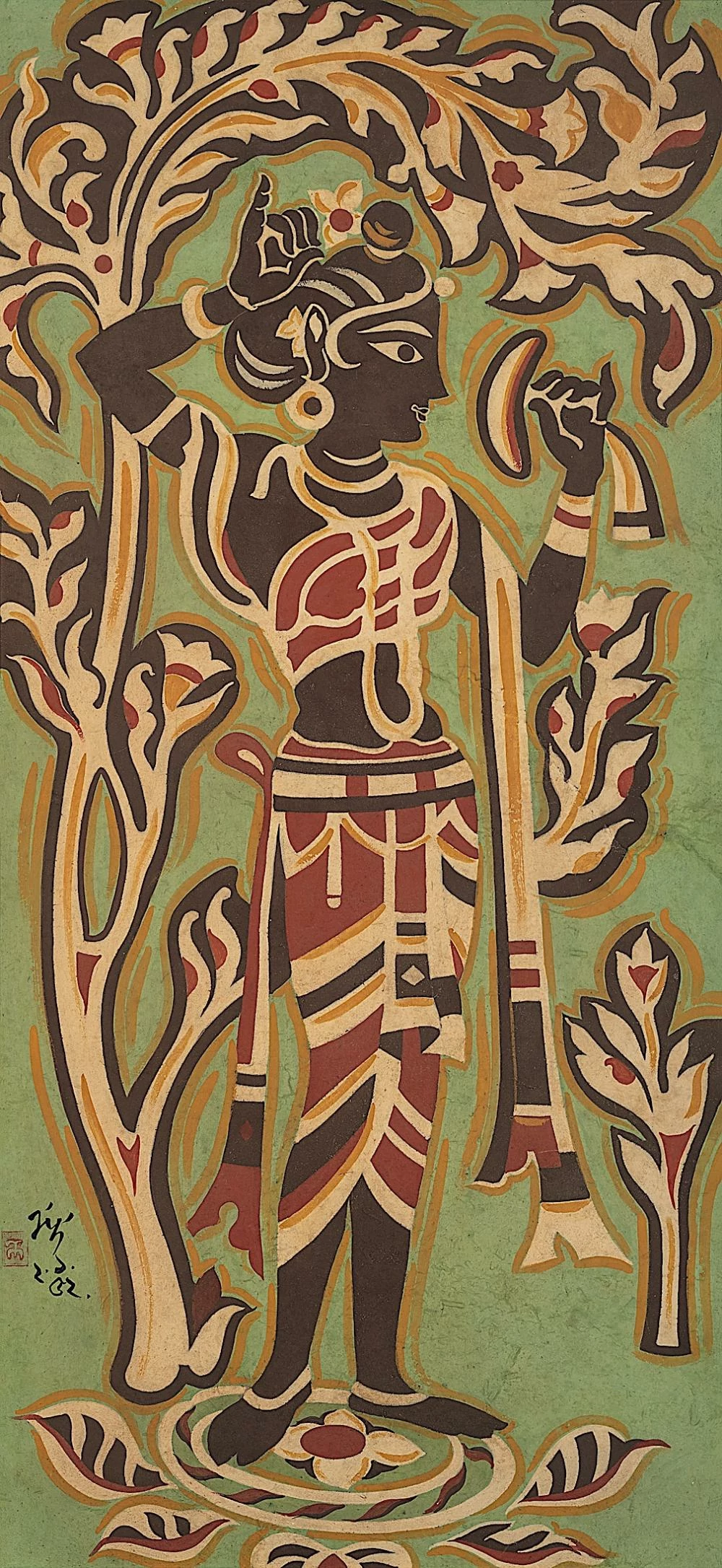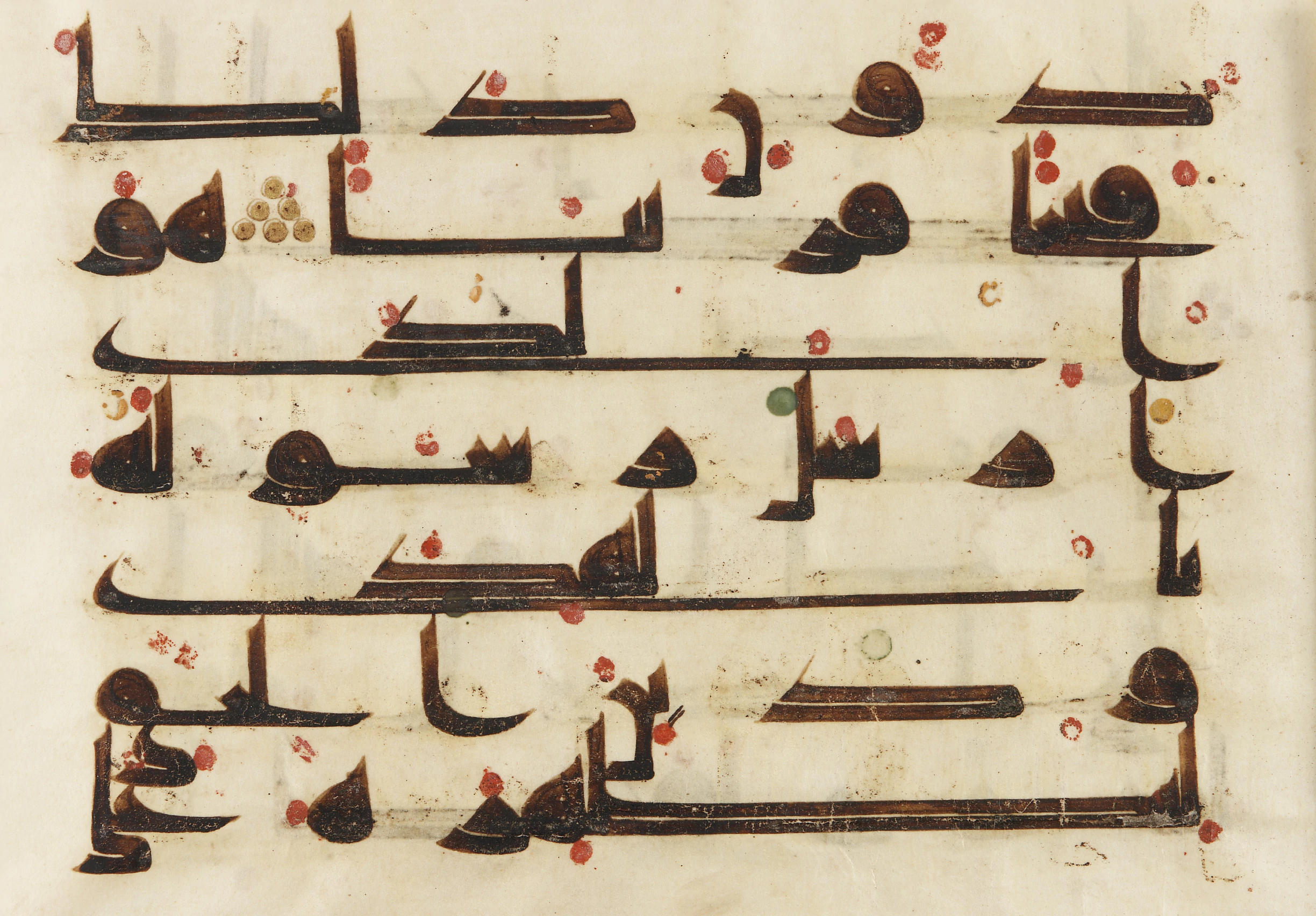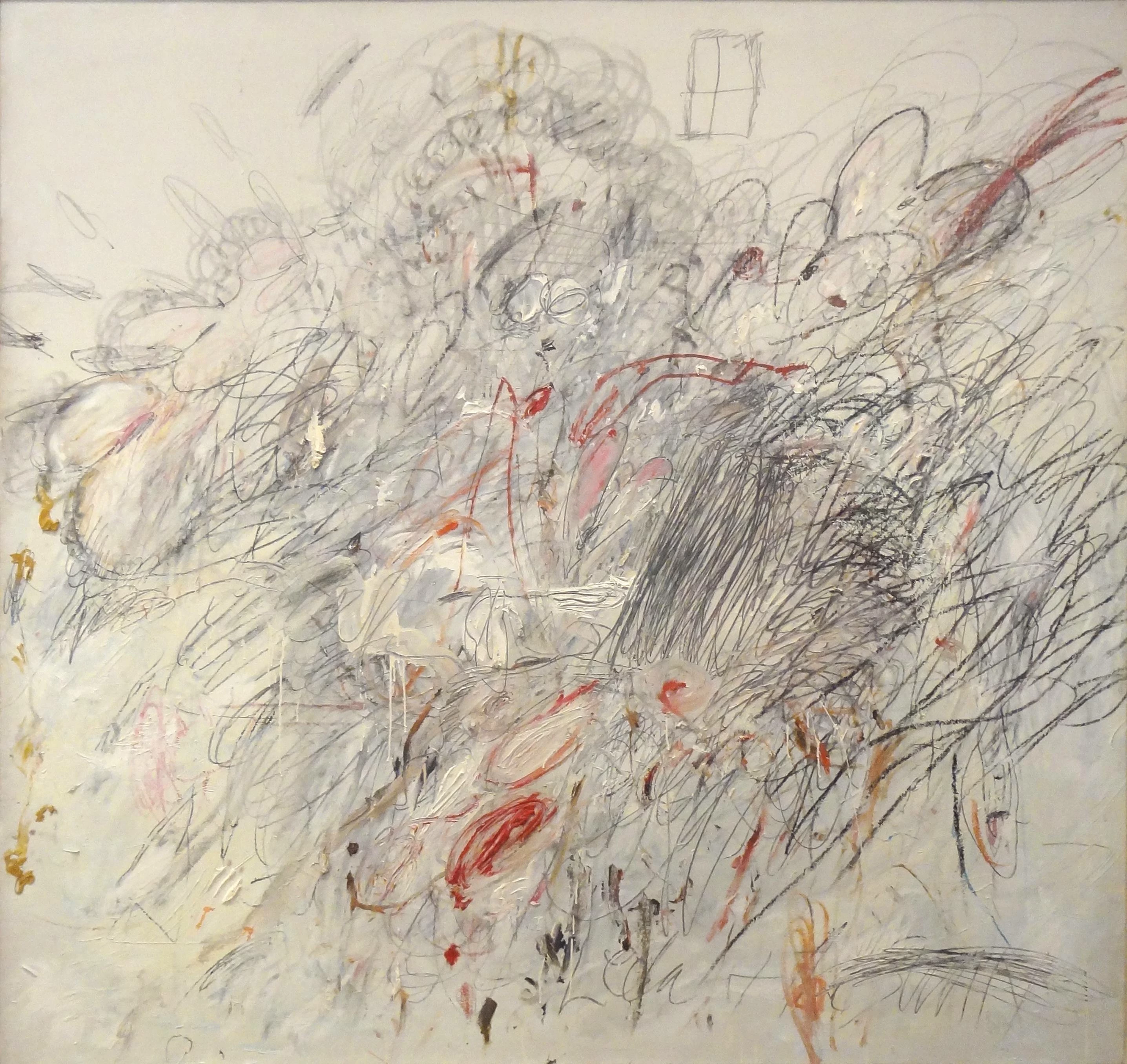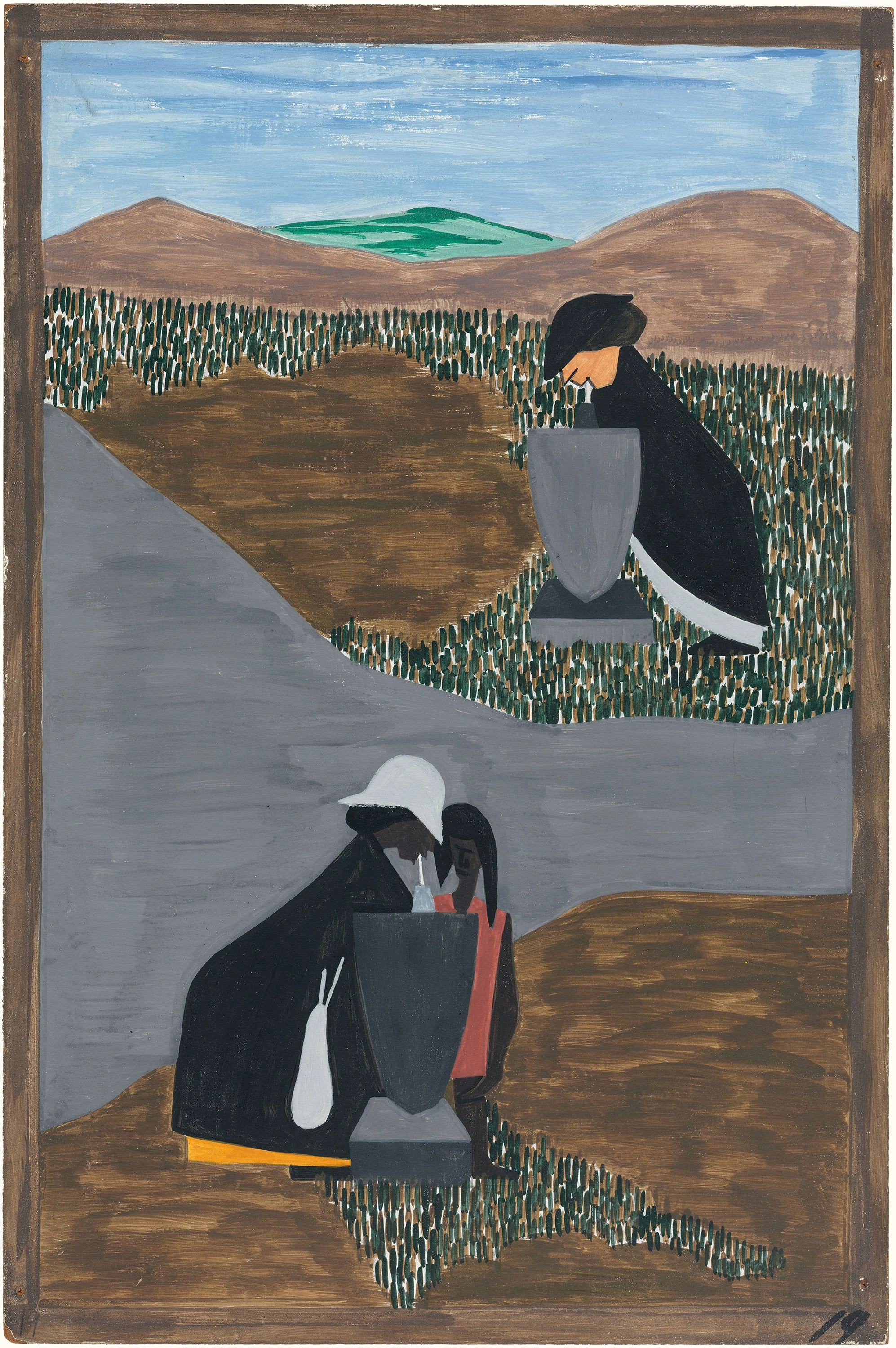
Migration Series No.19: There had always been discrimination Jacob Lawrence, 1940 – 1941
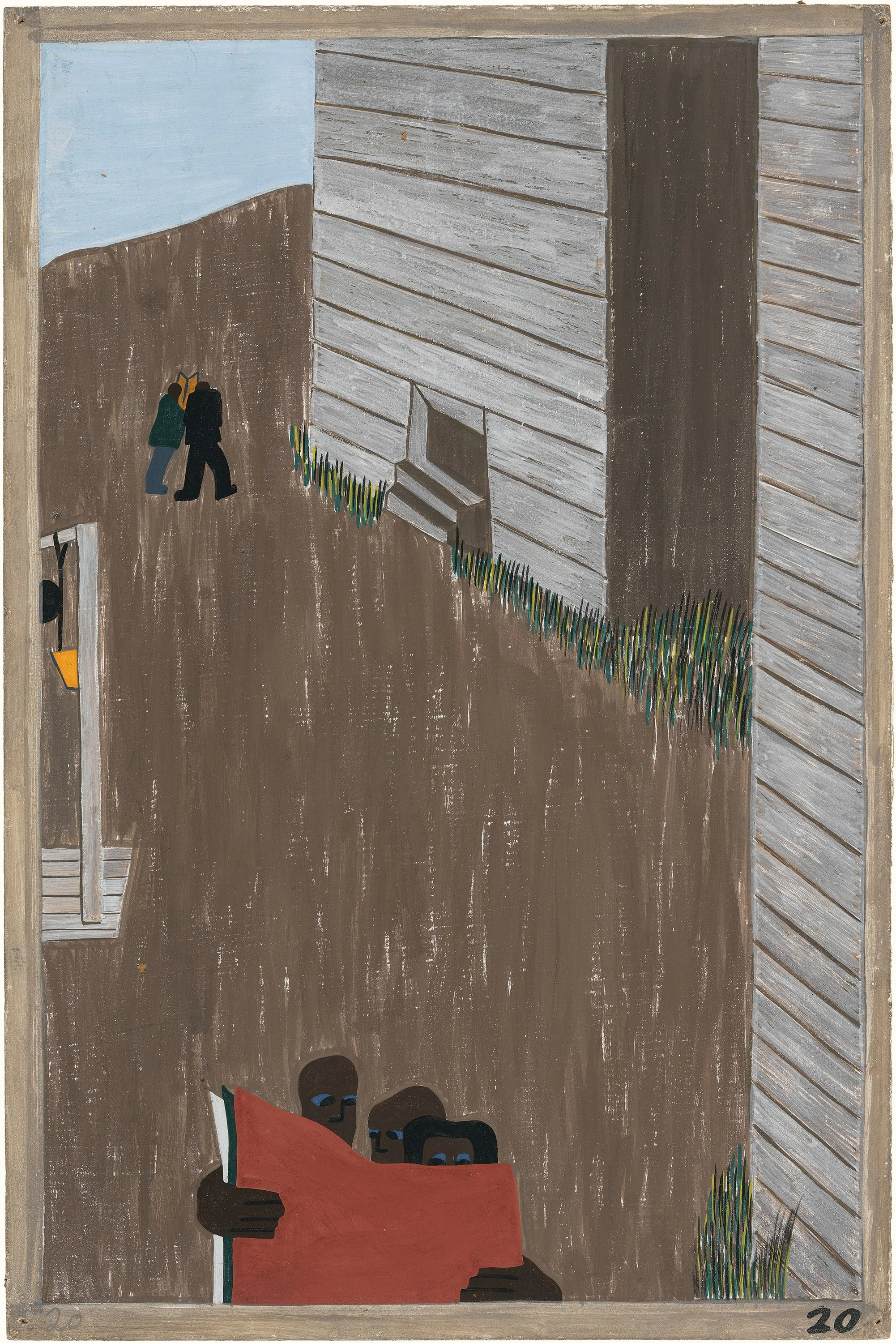
Migration Series No.20: In many of the communities the Black press was read with great interest. It encouraged the movement Jacob Lawrence, 1940 – 1941
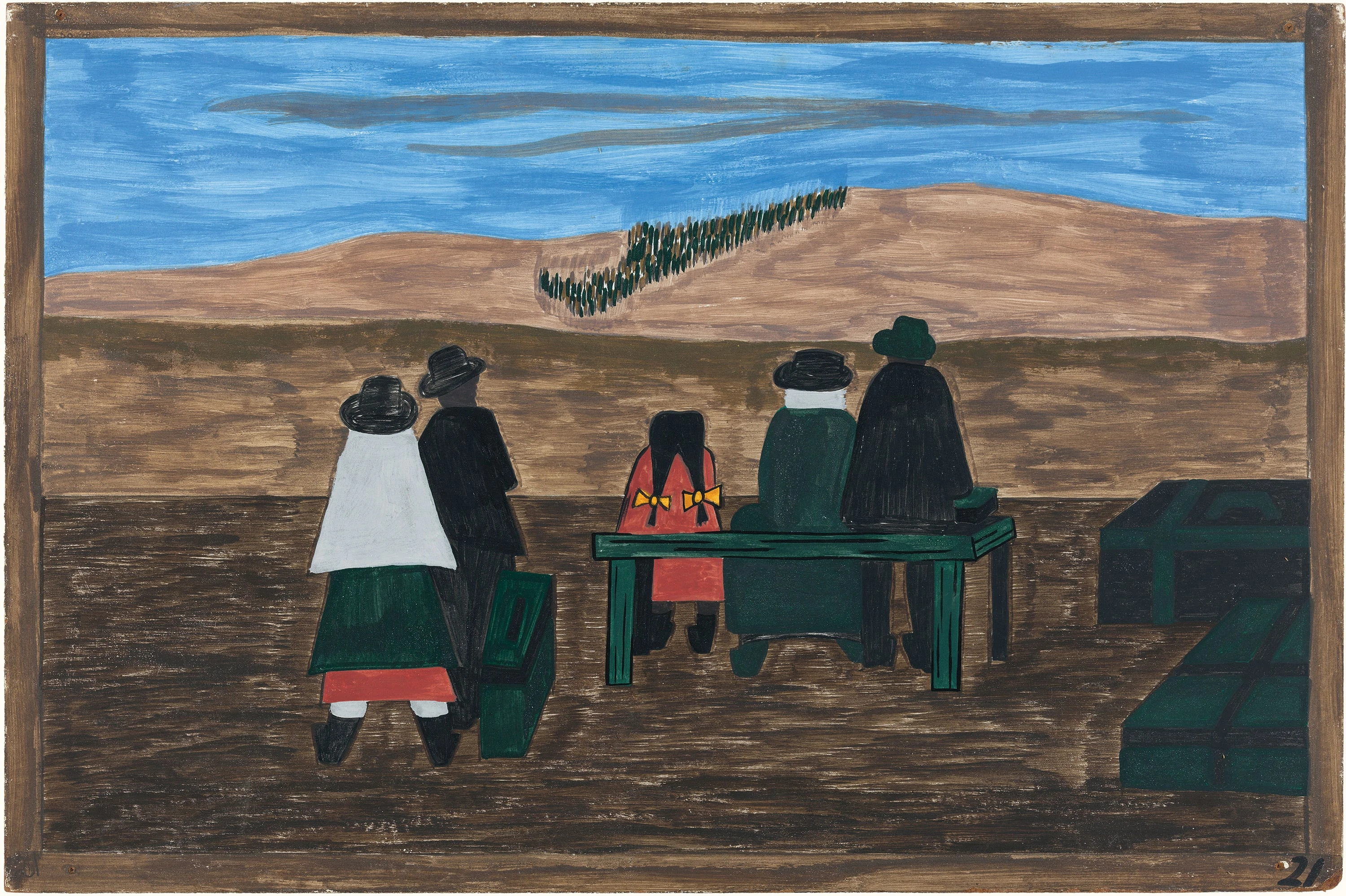
Migration Series No.21: Families arrived at the station very early. They did not wish to miss their trains north Jacob Lawrence, 1940 – 1941
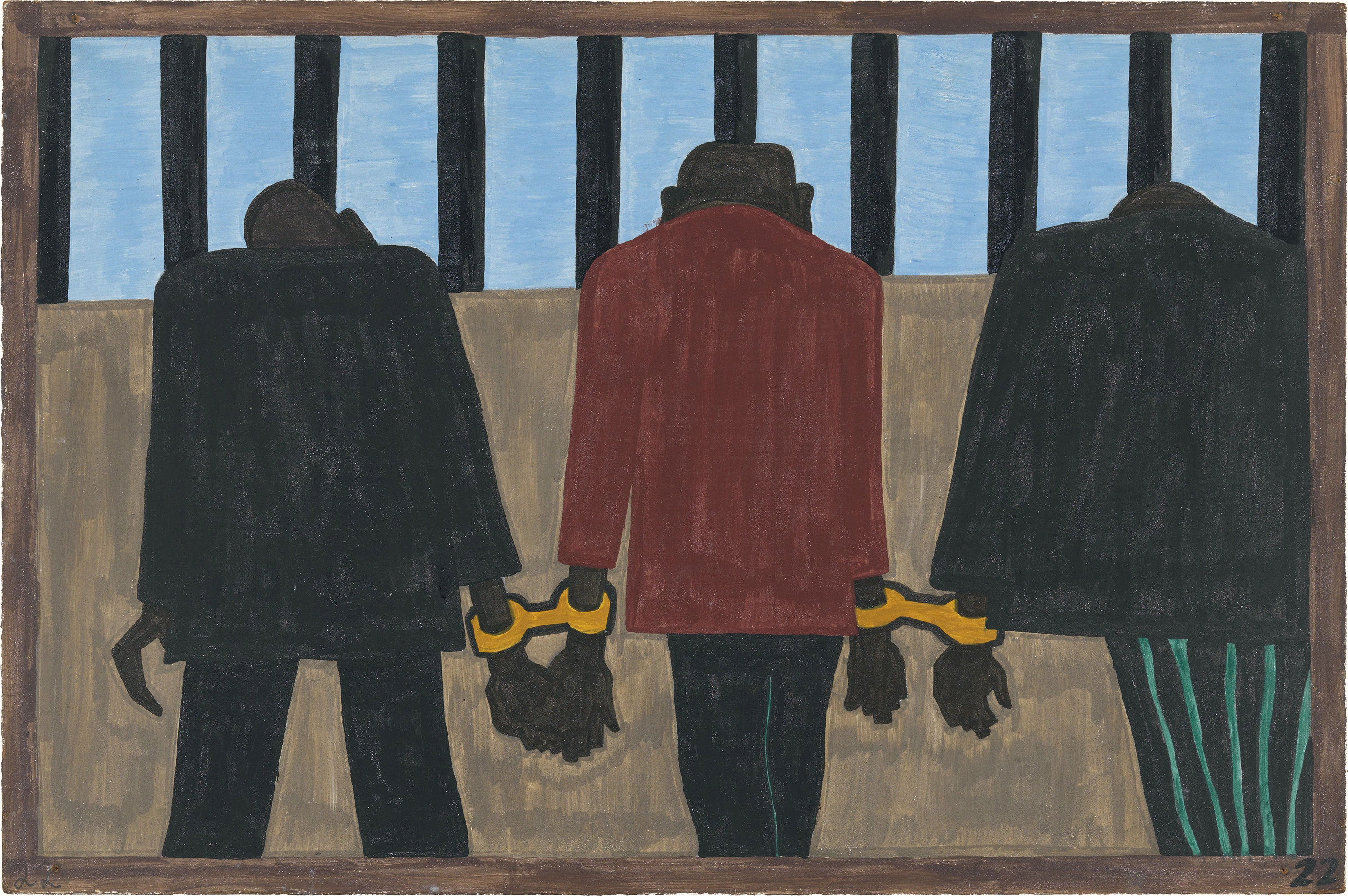
Migration Series No.22: Migrants left. They did not feel safe. It was not wise to be found on the streets late at night. They were arrested on the slightest provocation Jacob Lawrence, 1940 – 1941
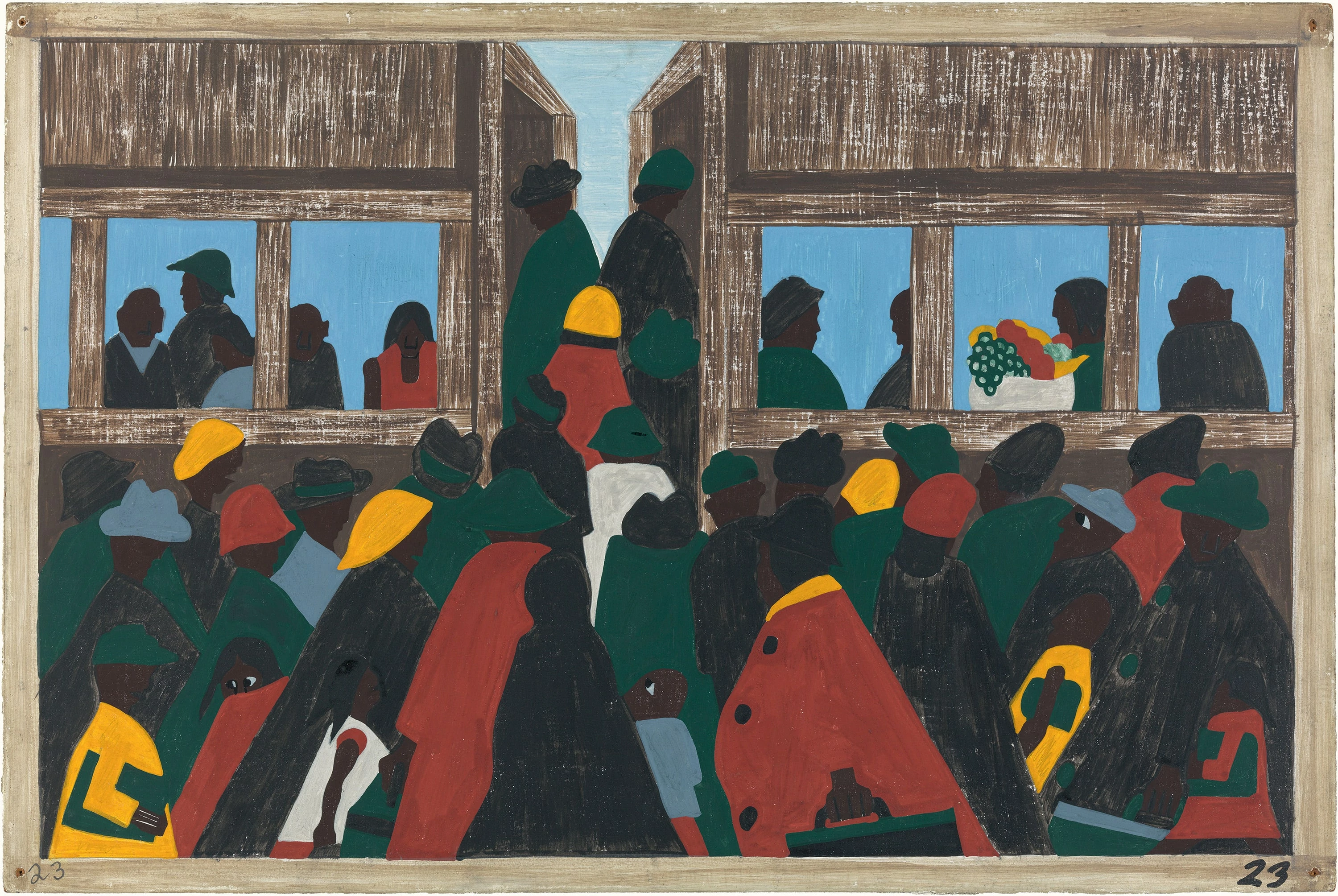
Migration Series No.23: The migration spread Jacob Lawrence, 1940 – 1941
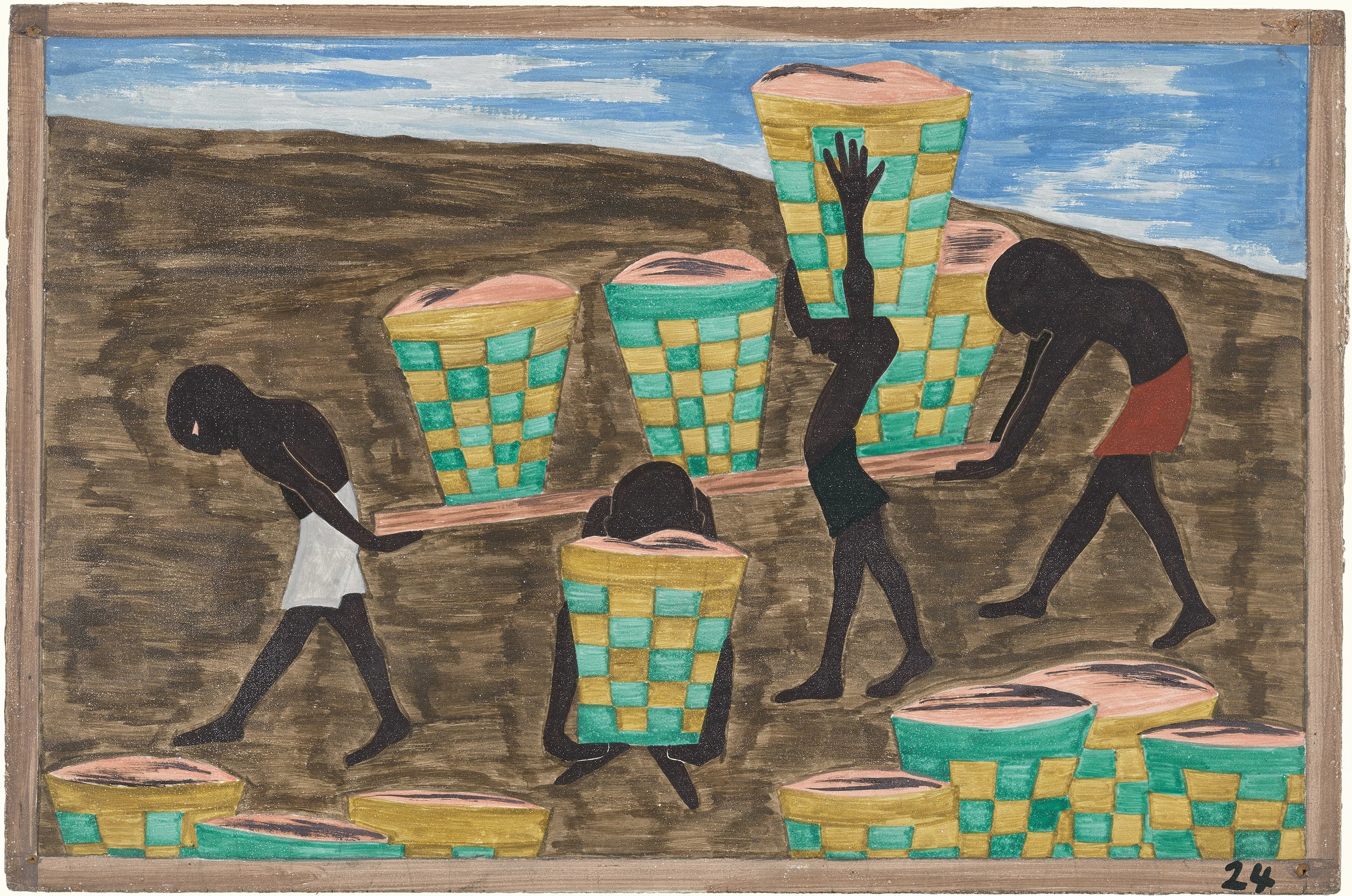
Migration Series No.24: Their children were forced to work in the fields. They could not go to school Jacob Lawrence, 1940 – 1941
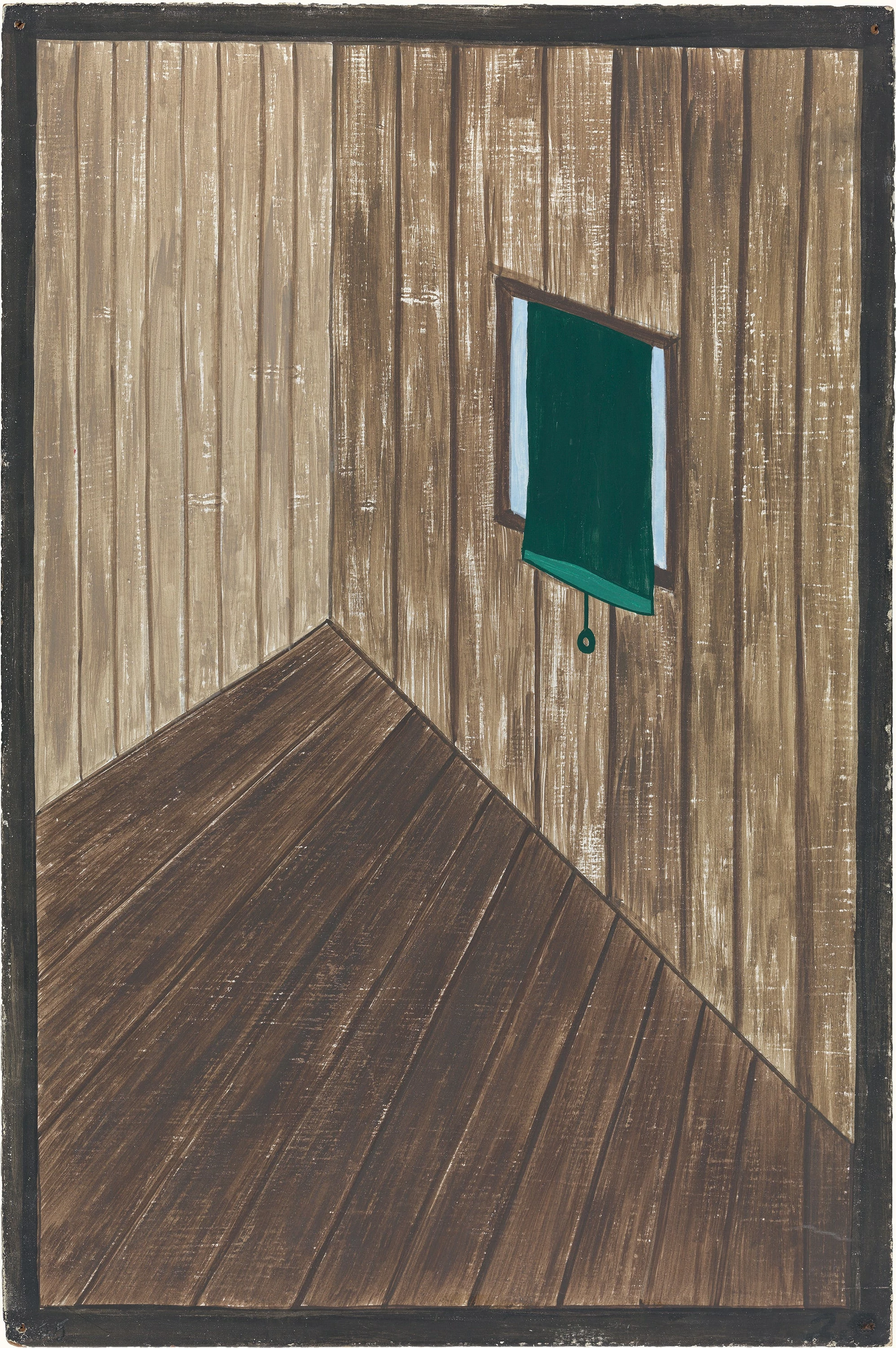
Migration Series No.25: They left their homes. Soon some communities were left almost empty Jacob Lawrence, 1940 – 1941
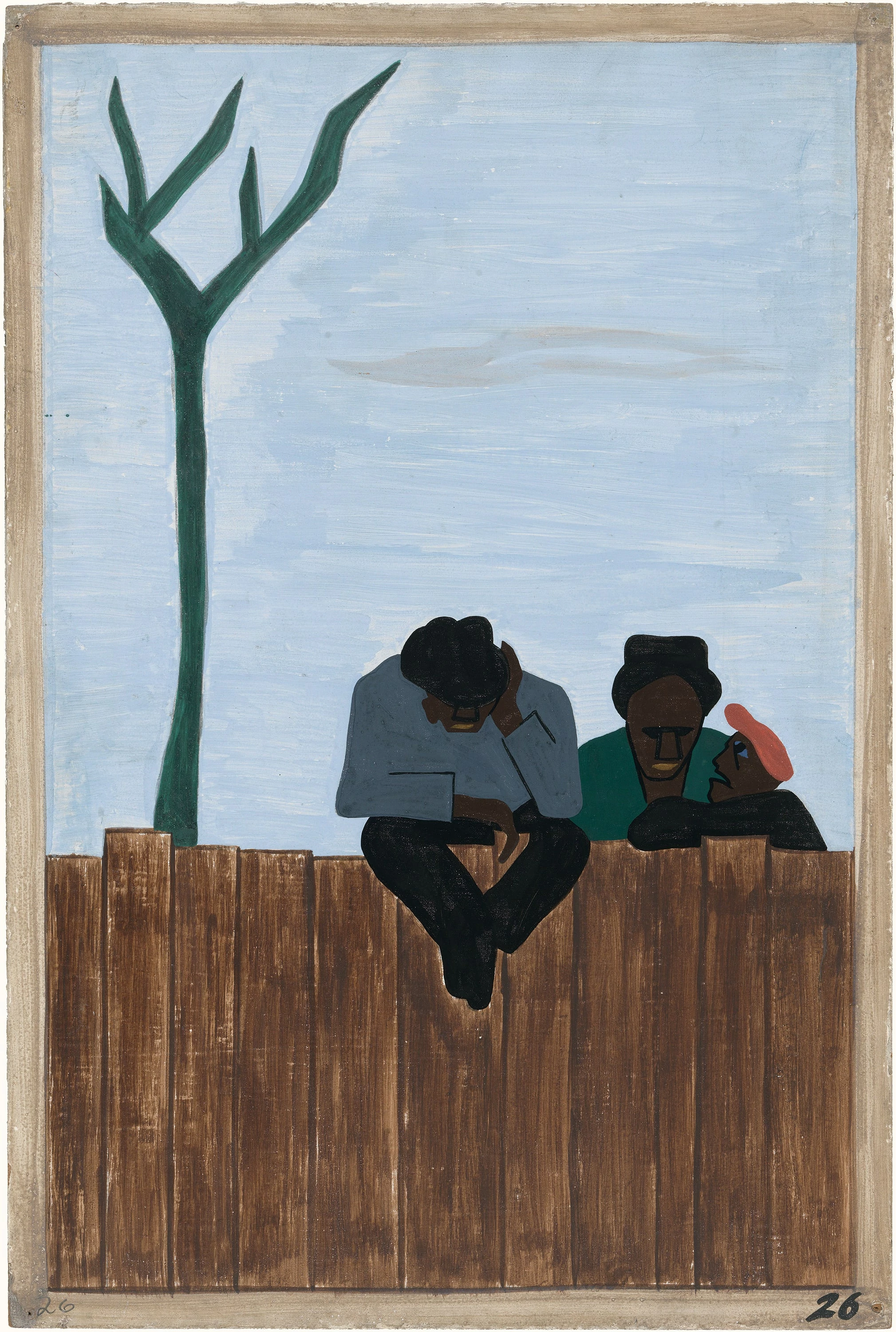
Migration Series No.26: And people all over the South continued to discuss this great movement Jacob Lawrence, 1940 – 1941
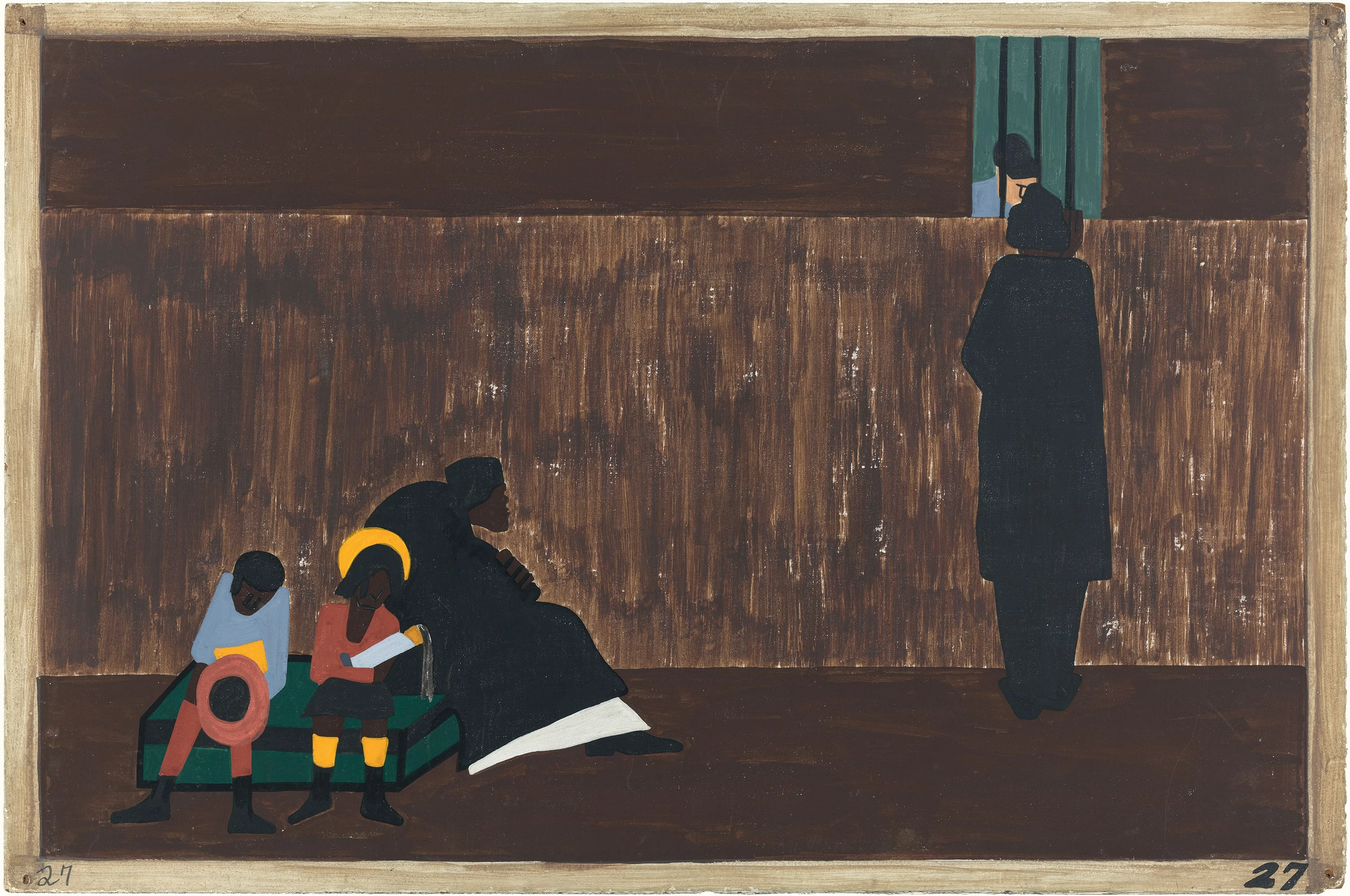
Migration Series No.27: Many men stayed behind until they could take their families north with them Jacob Lawrence, 1940 – 1941
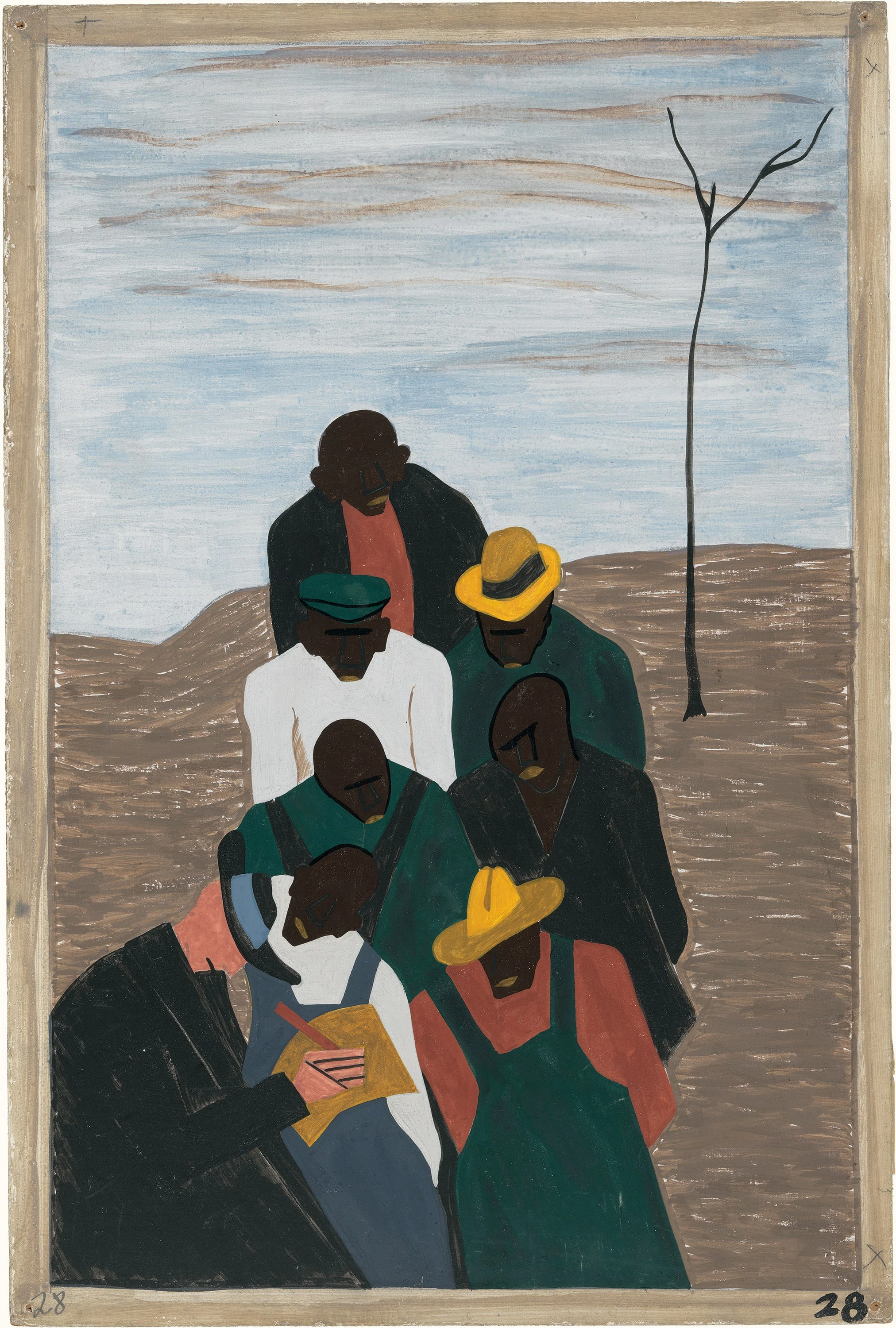
Migration Series No.28: The labor agent sent south by northern industry was a familiar presence in the Black communities Jacob Lawrence, 1940 – 1941
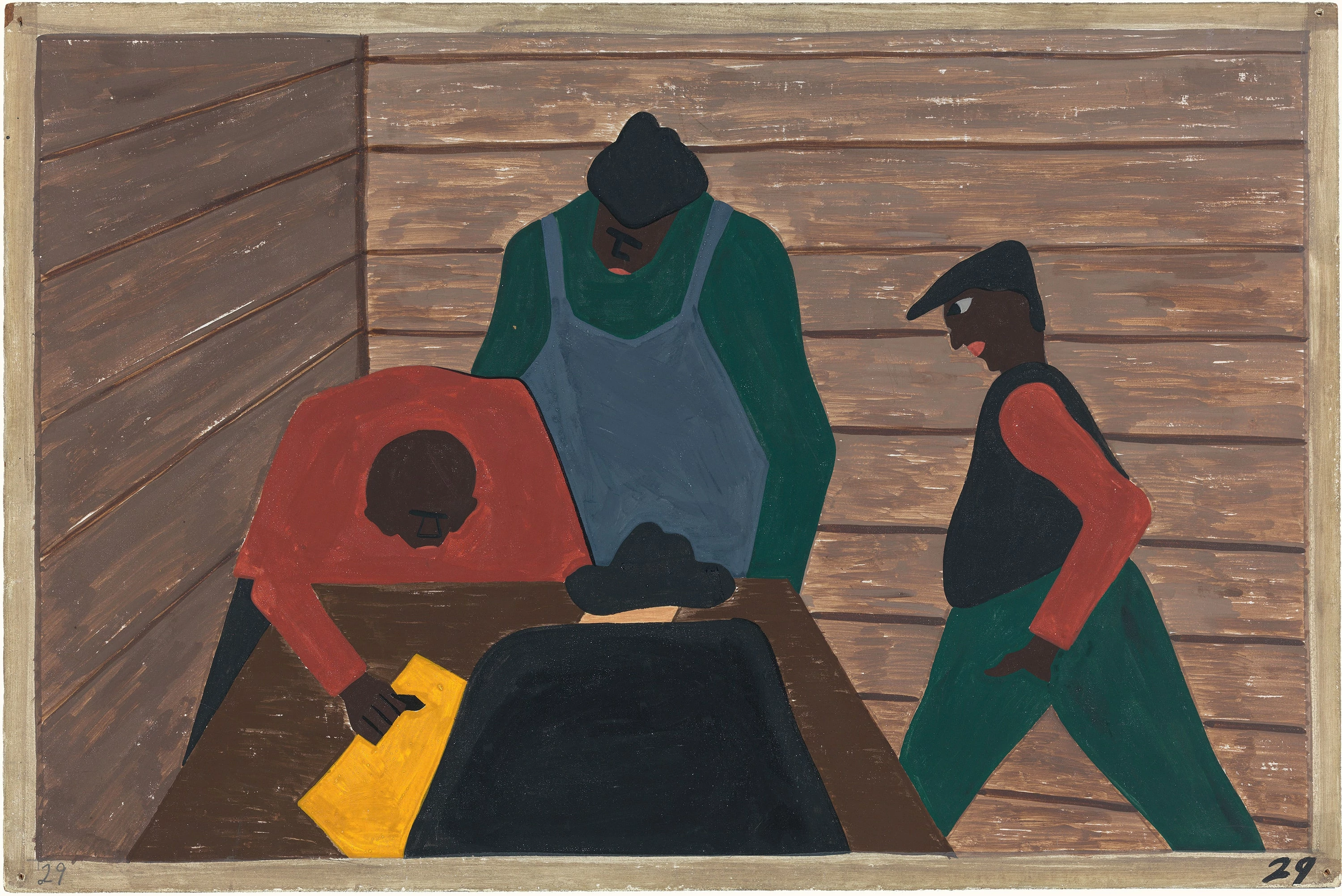
Migration Series No.29: The labor agent recruited unsuspecting laborers as strike breakers for northern industries Jacob Lawrence, 1940 – 1941
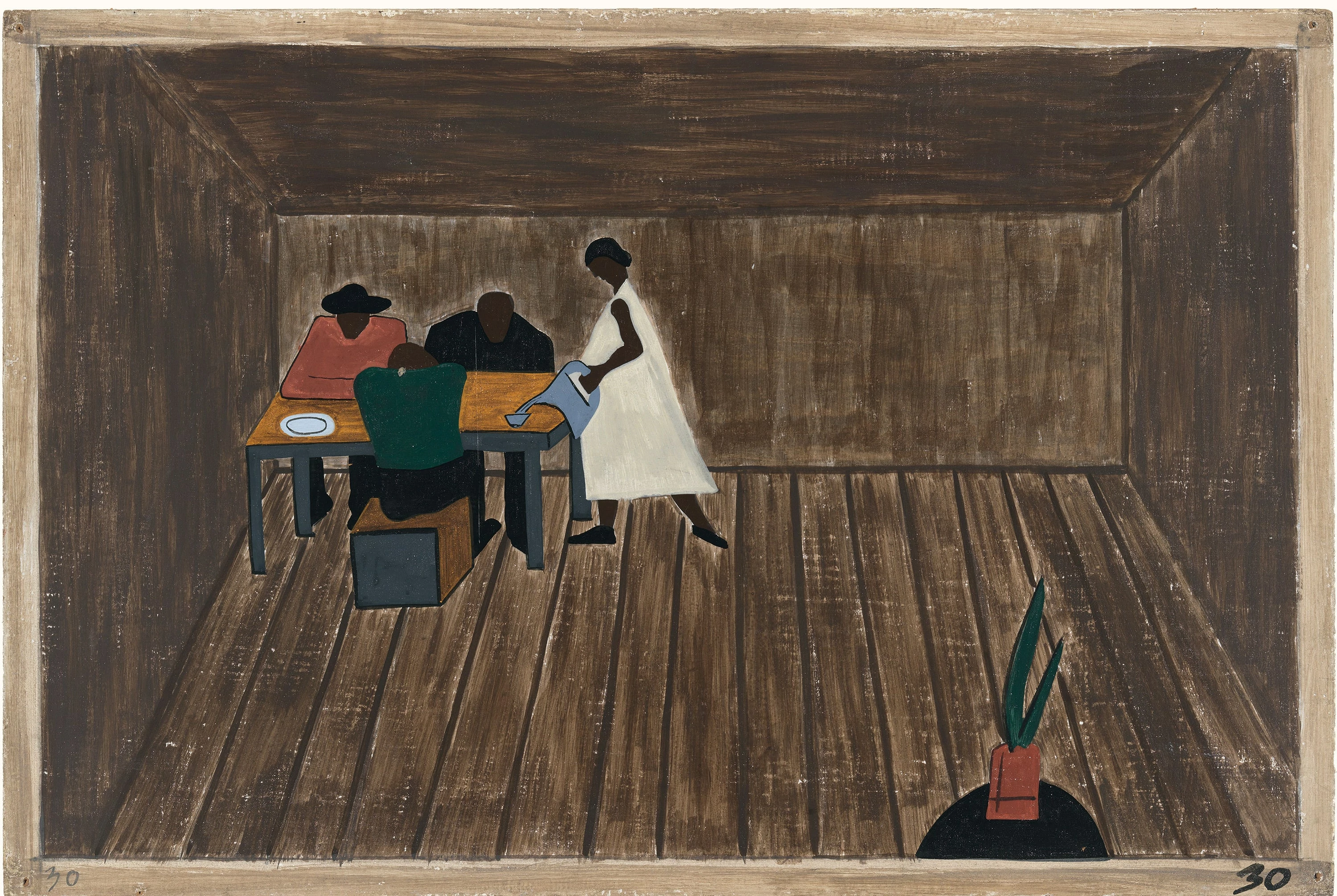
Migration Series No.30: In every southern home people met to decide whether or not to go north Jacob Lawrence, 1940 – 1941
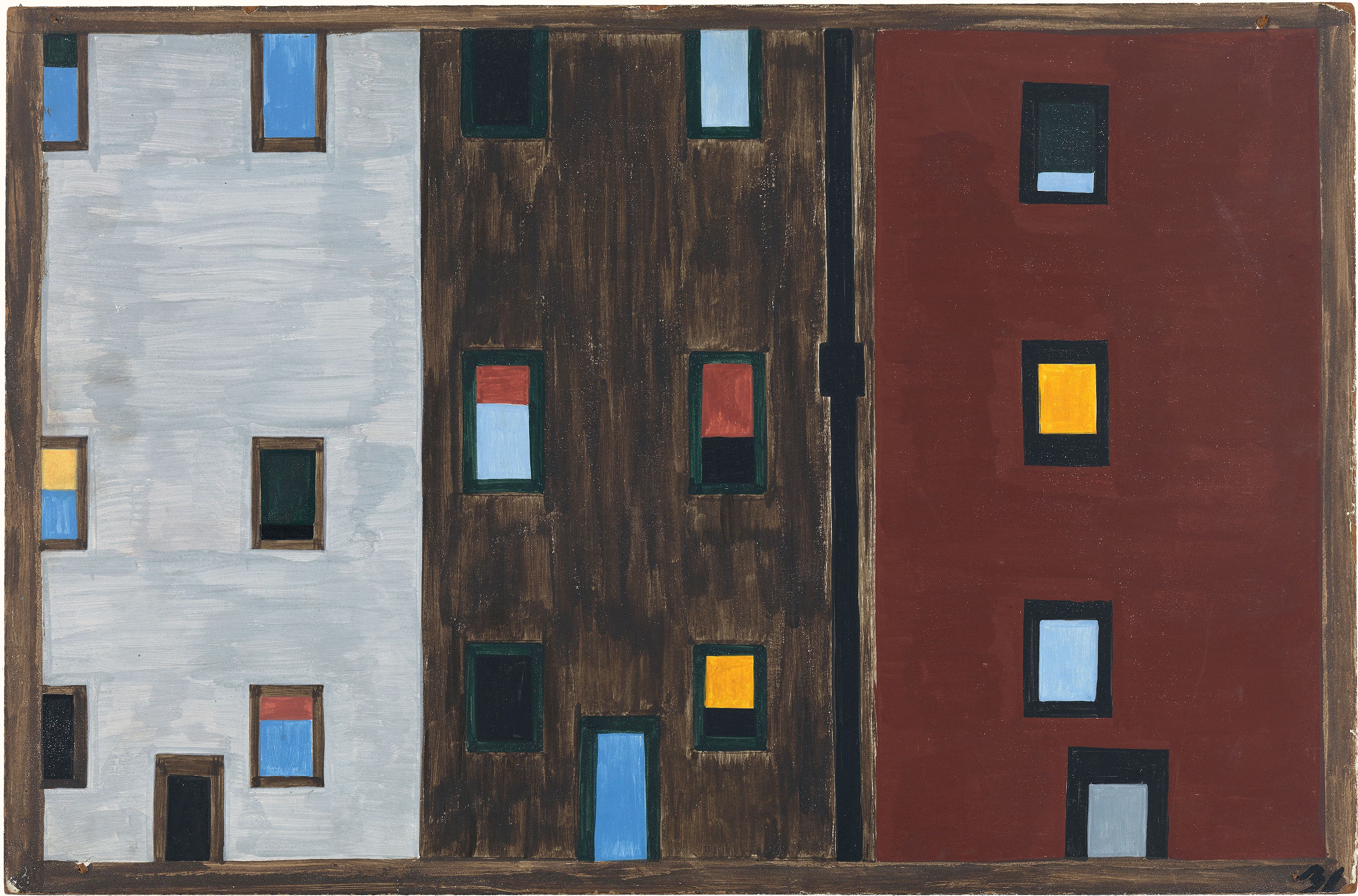
Migration Series No.31: The migrants found improved housing when they arrived north Jacob Lawrence, 1940 – 1941
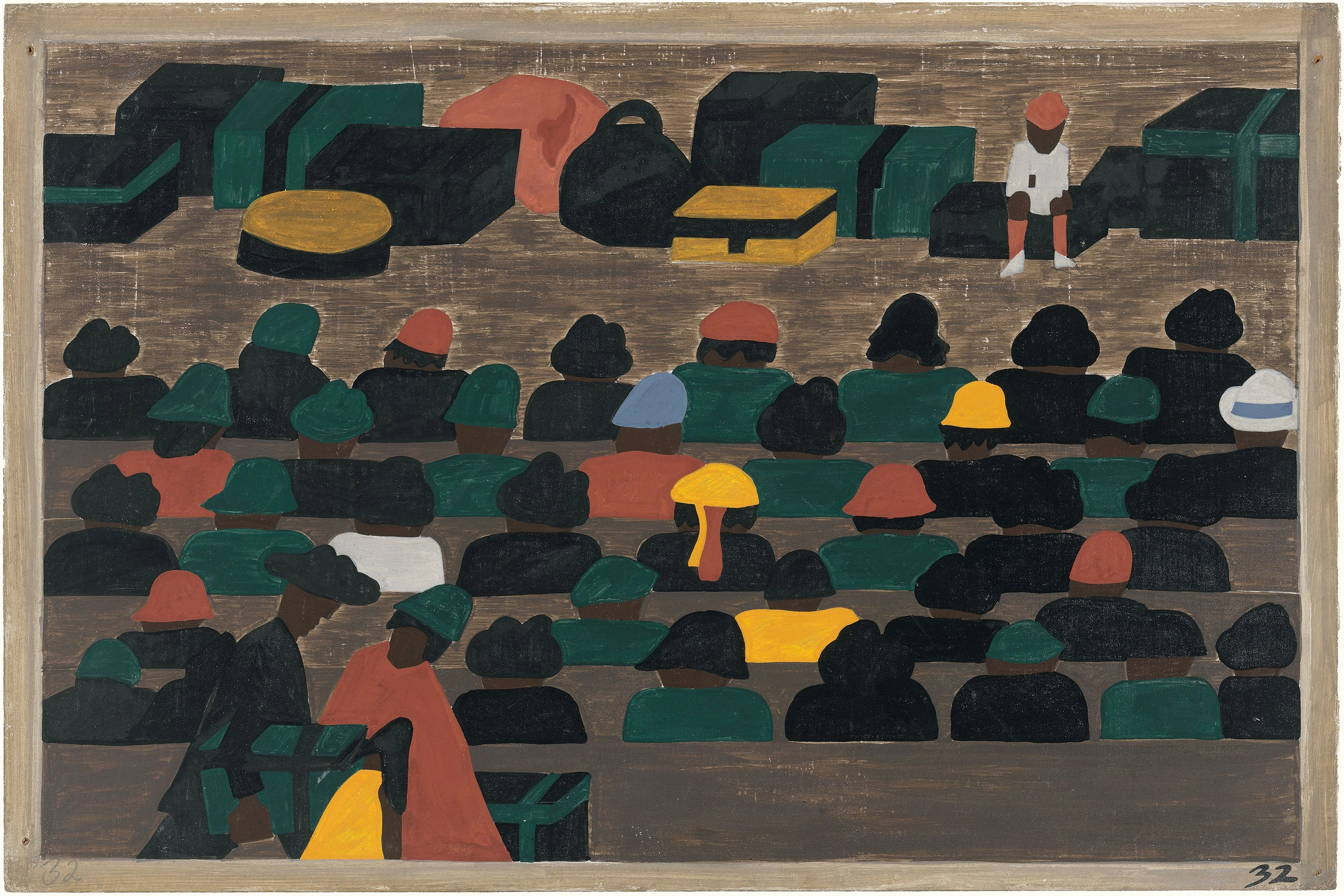
Migration Series No.32: The railroad stations in the South were crowded with northbound travelers Jacob Lawrence, 1940 – 1941
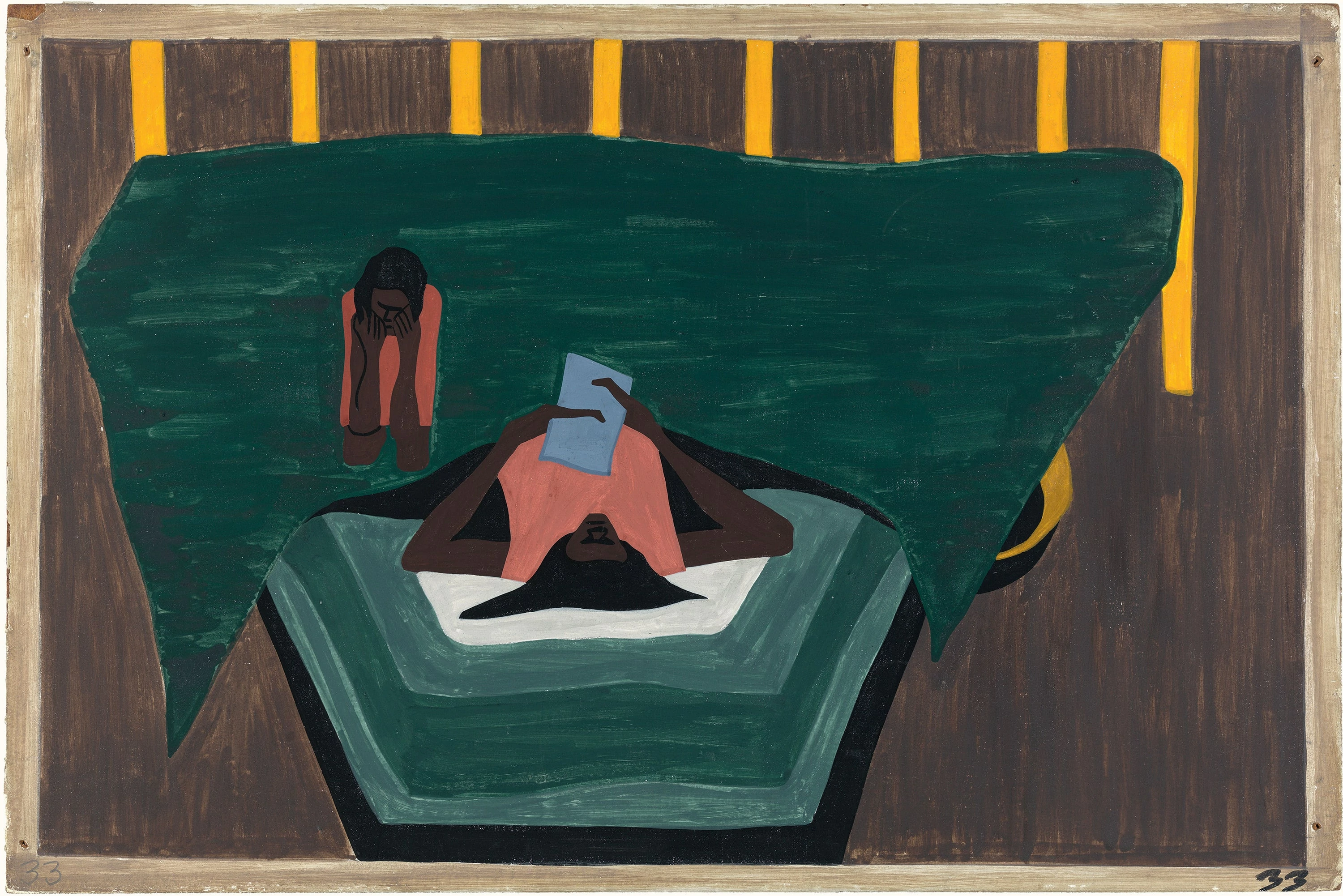
Migration Series No.33: Letters from relatives in the North told of the better life there Jacob Lawrence, 1940 – 1941
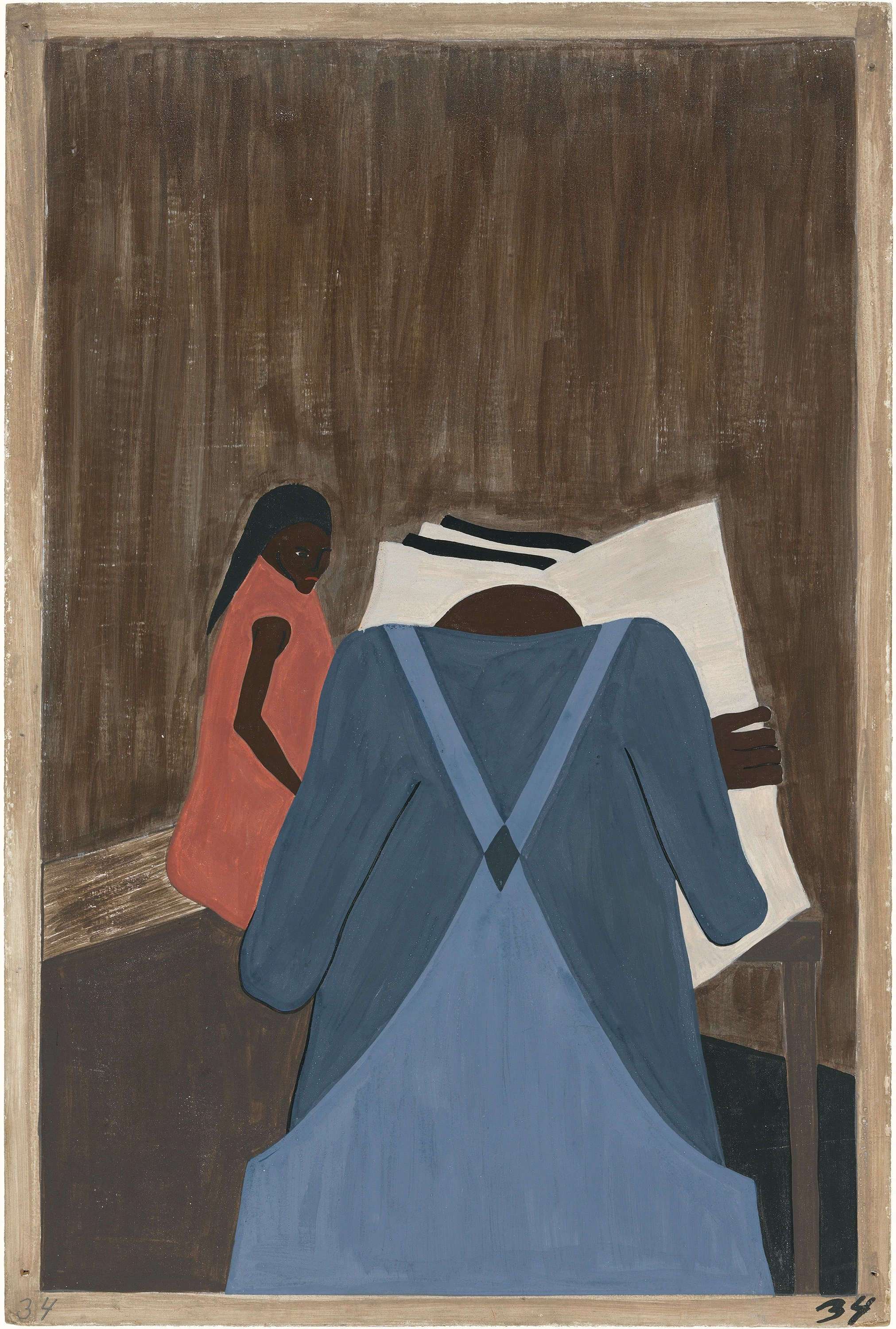
Migration Series No.34: The Black press urged the people to leave the South Jacob Lawrence, 1940 – 1941
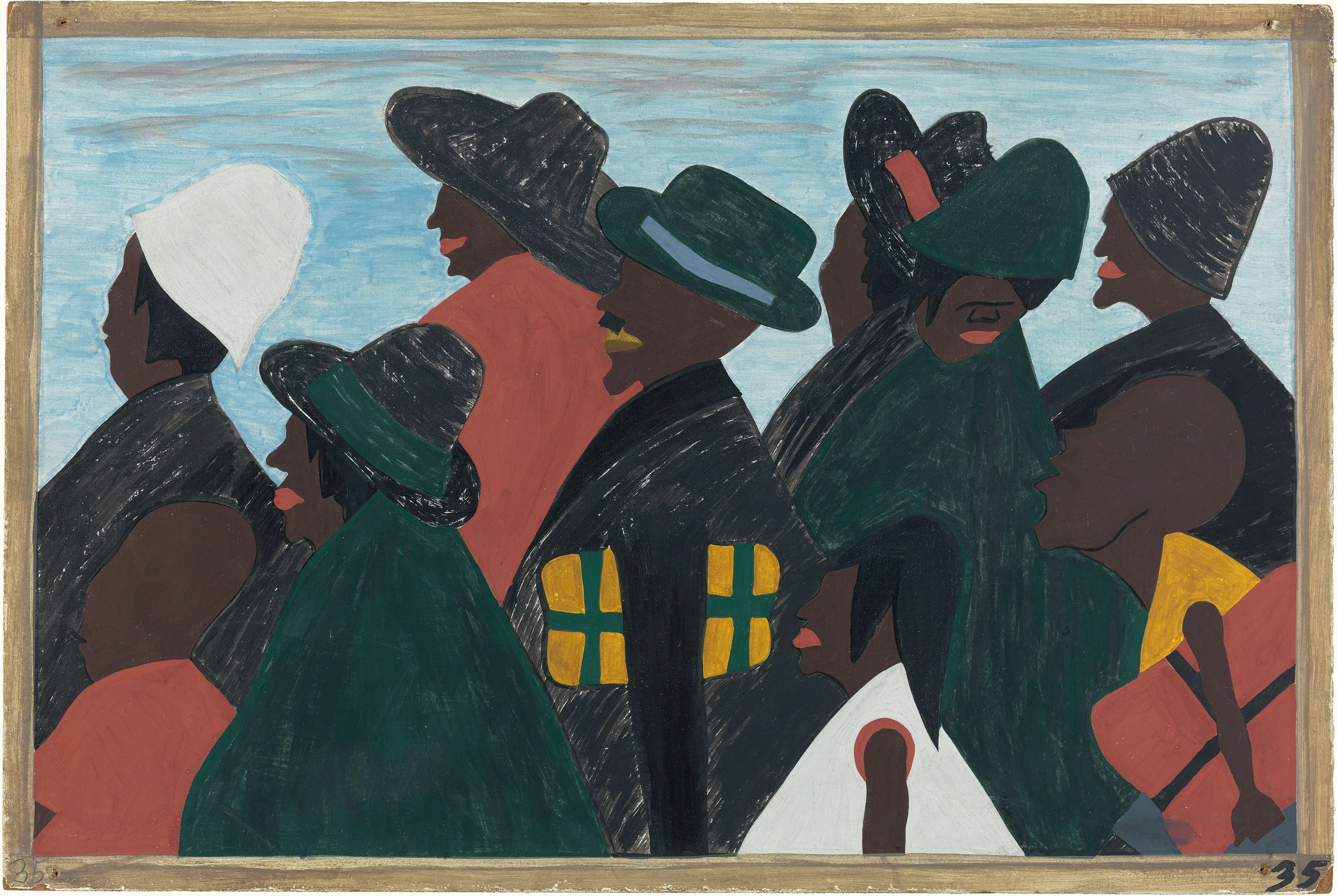
Migration Series No.35: They left the South in great numbers. They arrived in the North in great numbers Jacob Lawrence, 1940 – 1941
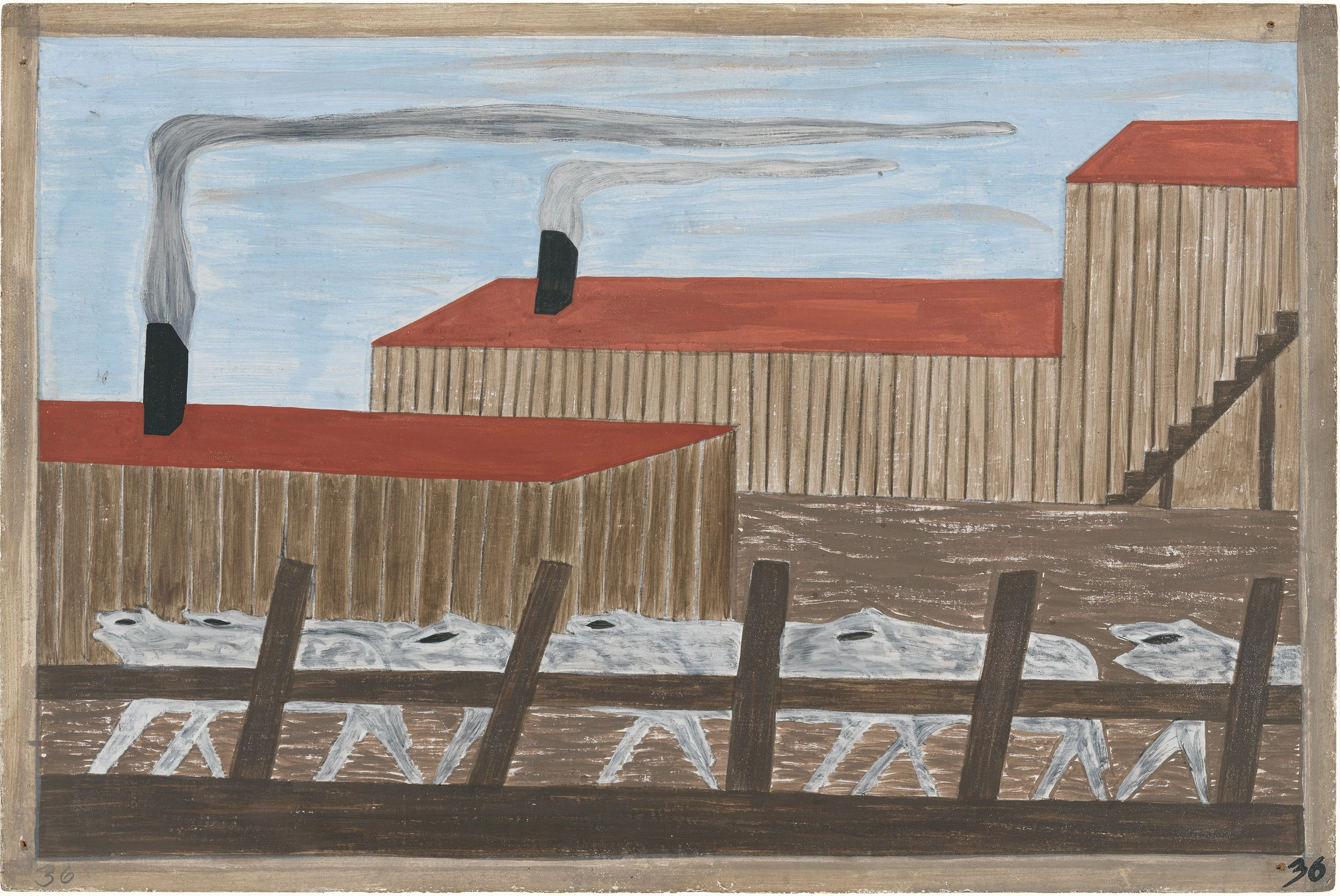
Migration Series No.36: Migrants arrived in Chicago, the gateway to the West Jacob Lawrence, 1940 – 1941
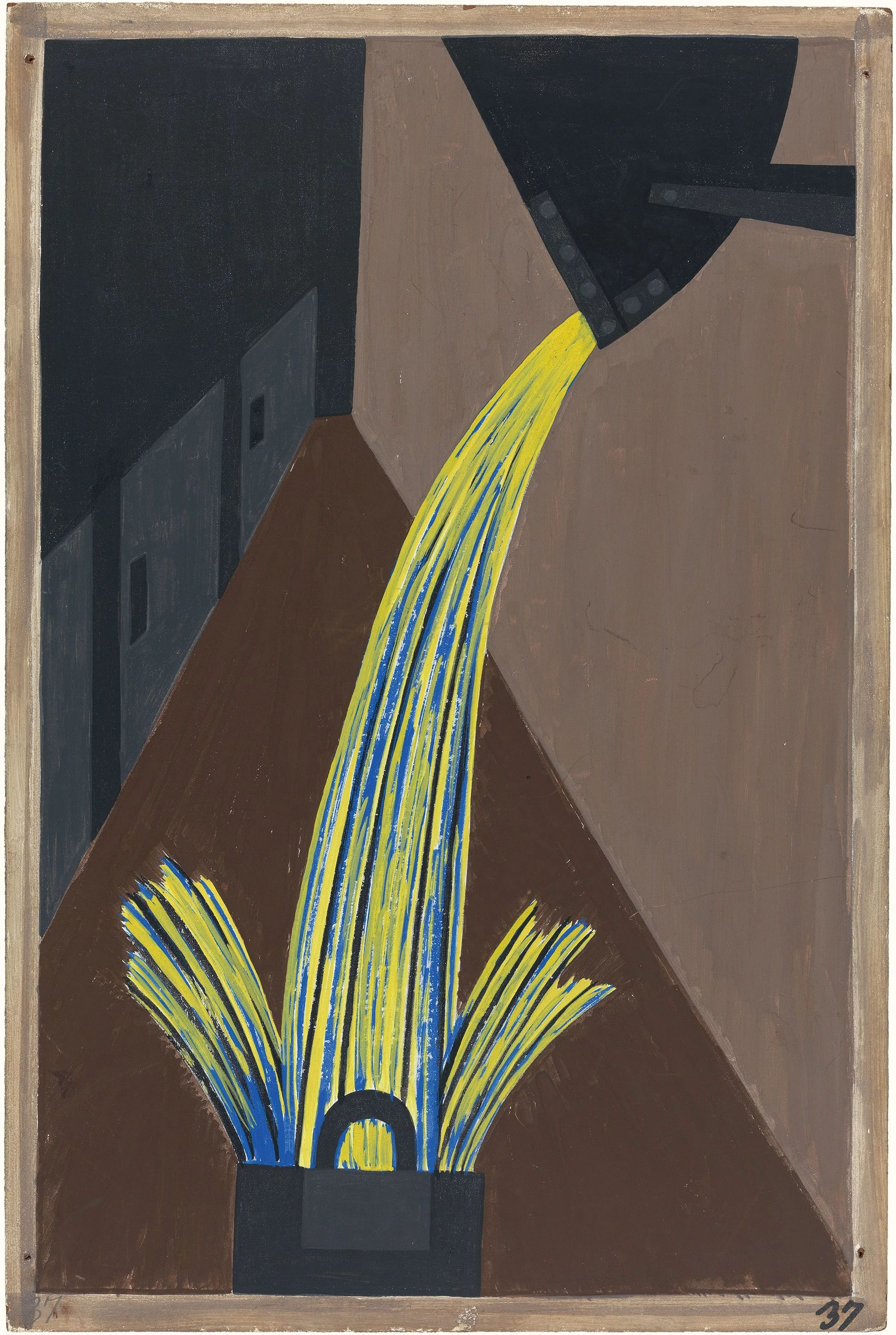
Migration Series No.37: Many migrants found work in the steel industry Jacob Lawrence, 1940 – 1941
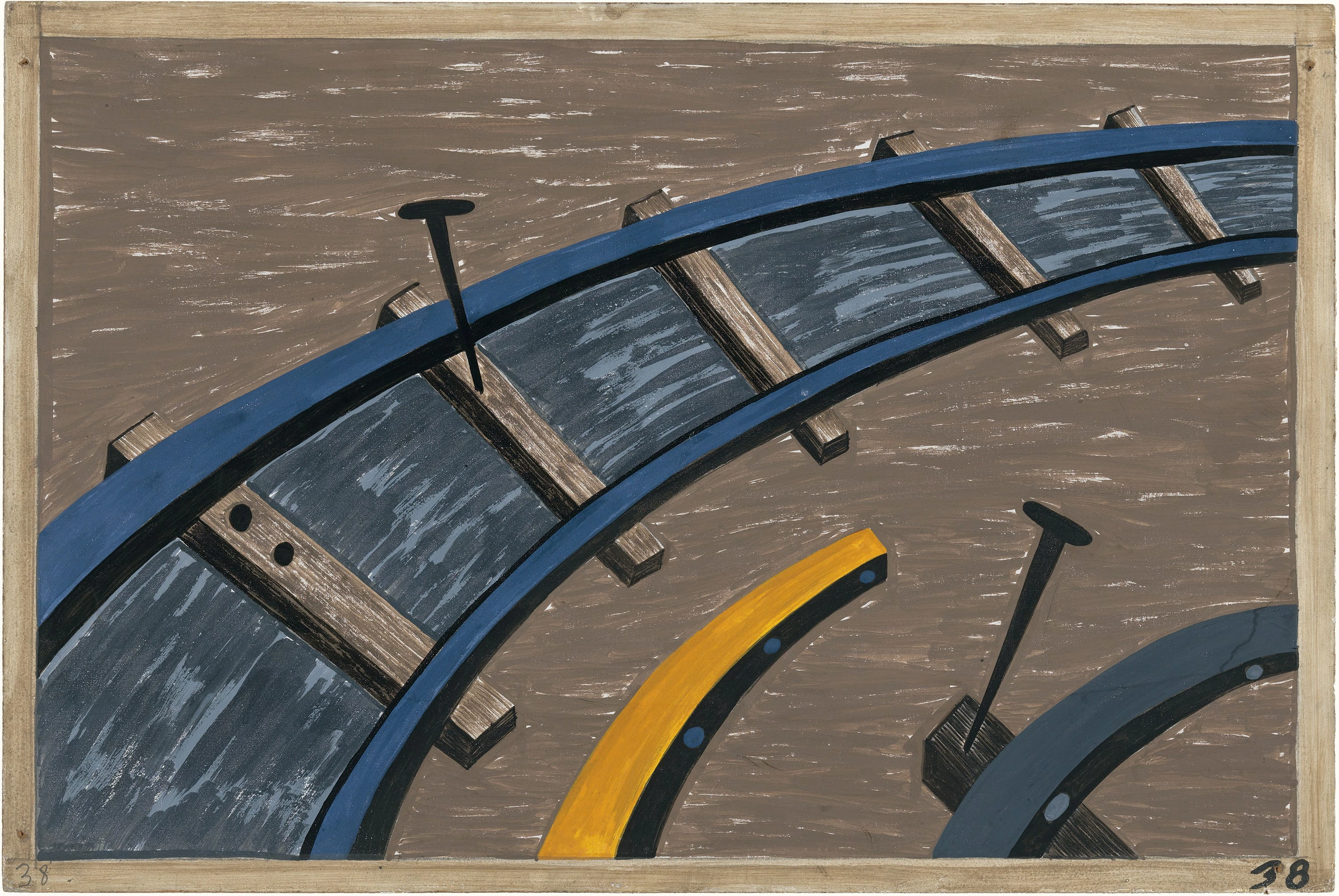
Migration Series No.38: They also worked on the railroads Jacob Lawrence, 1940 – 1941
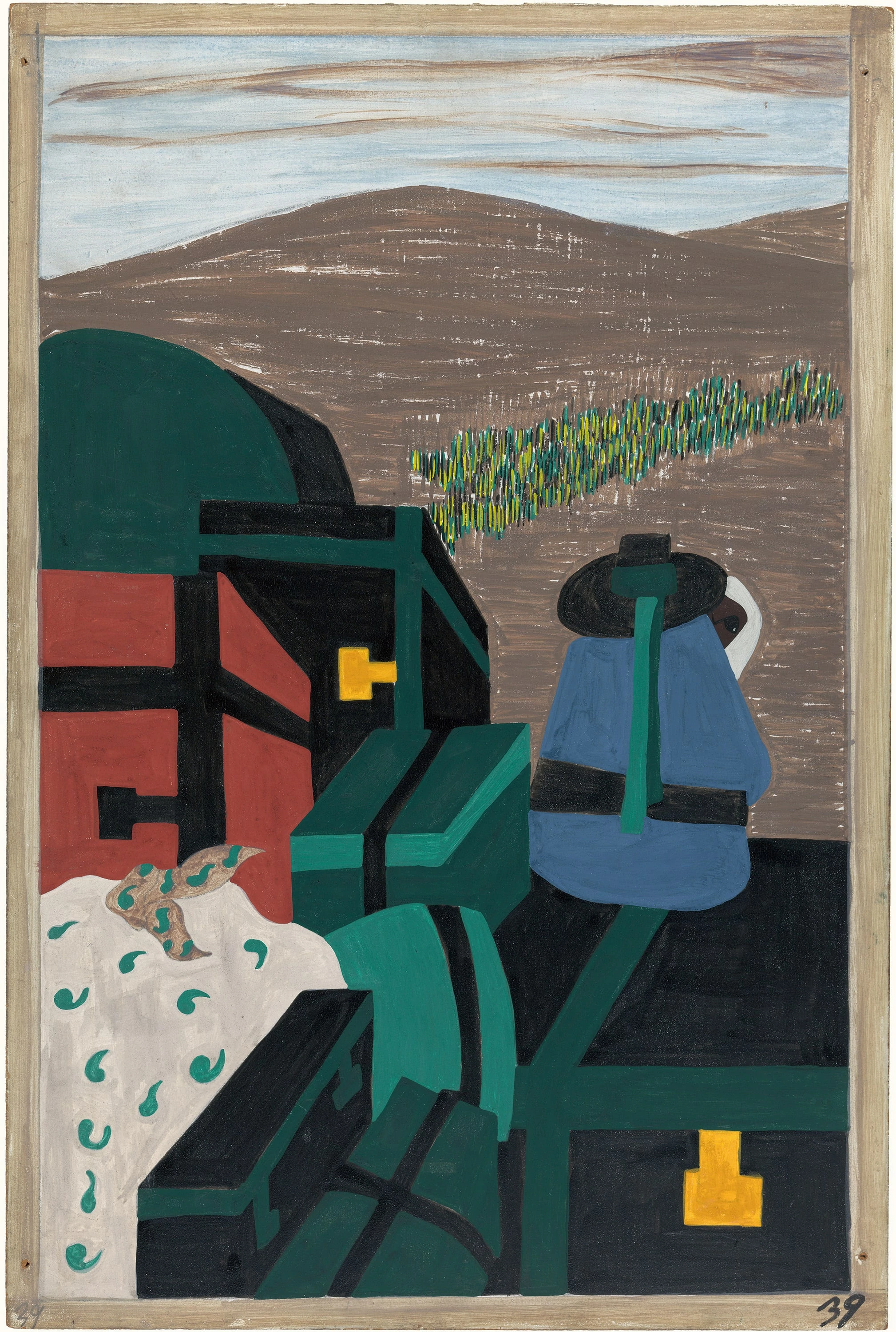
Migration Series No.39: Railroad platforms were piled high with luggage Jacob Lawrence, 1940 – 1941
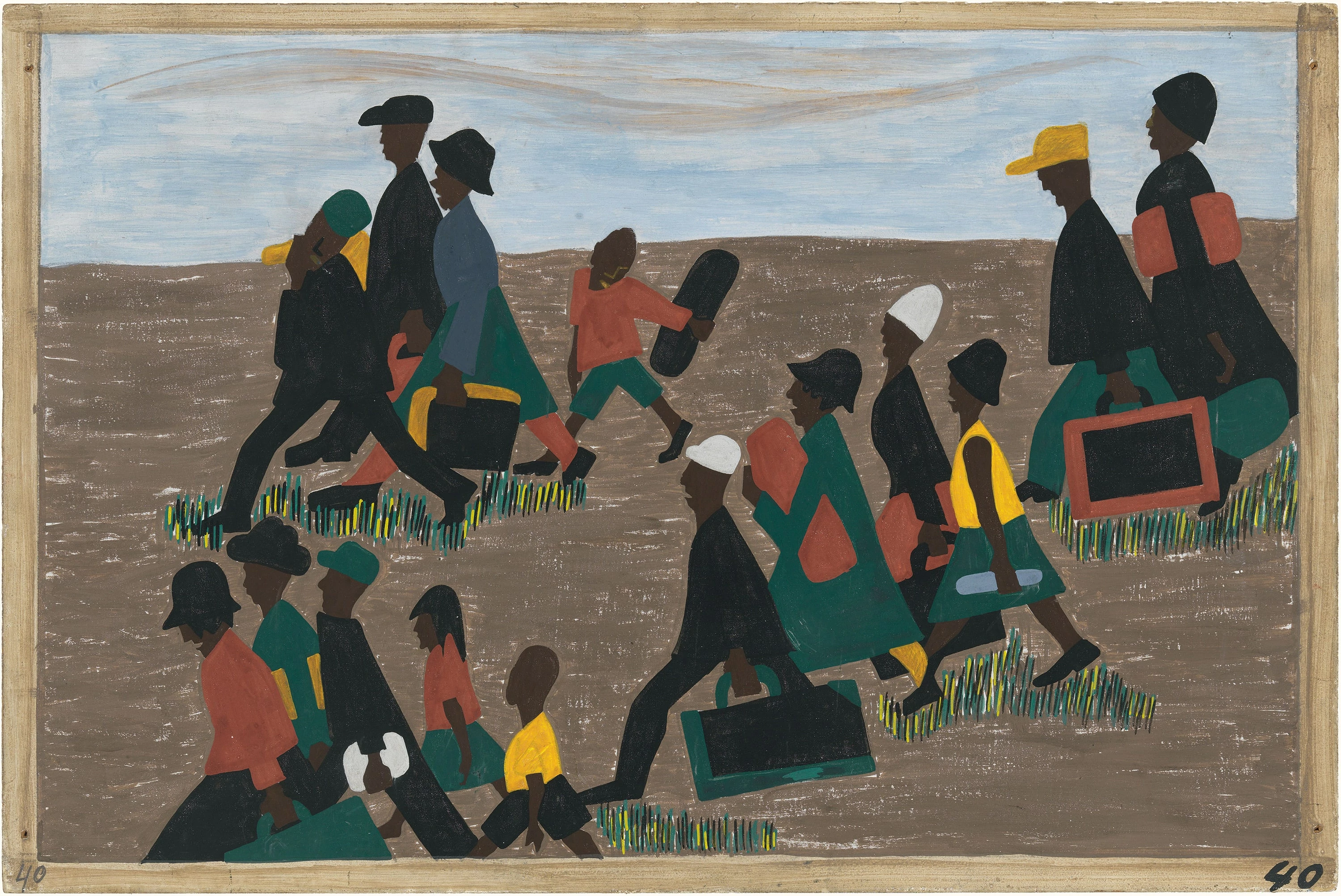
Migration Series No.40: The migrants arrived in great numbers Jacob Lawrence, 1940 – 1941
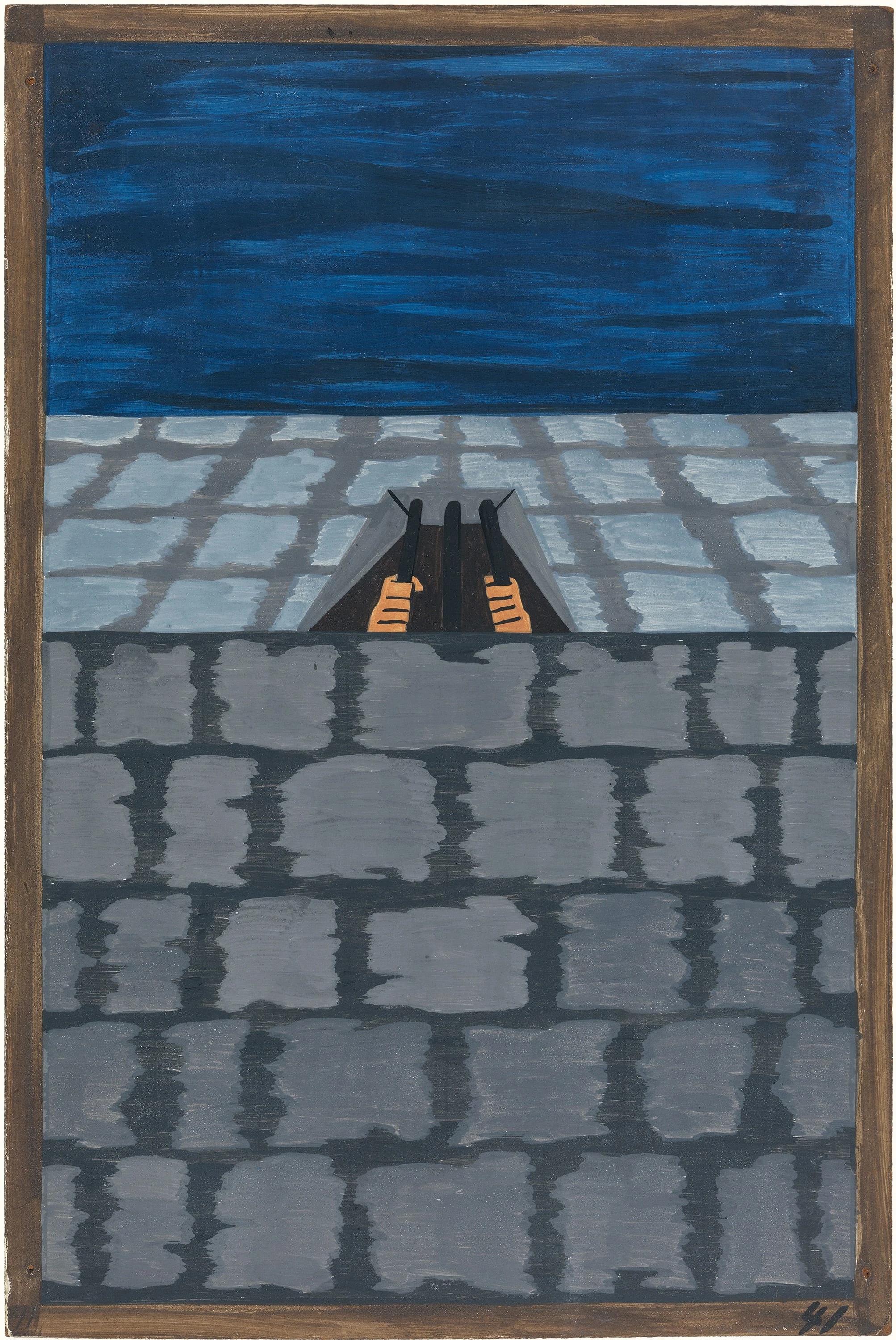
Migration Series No.41: The South was desperate to keep its cheap labor. Northern labor agents were jailed or forced to operate in secrecy Jacob Lawrence, 1940 – 1941
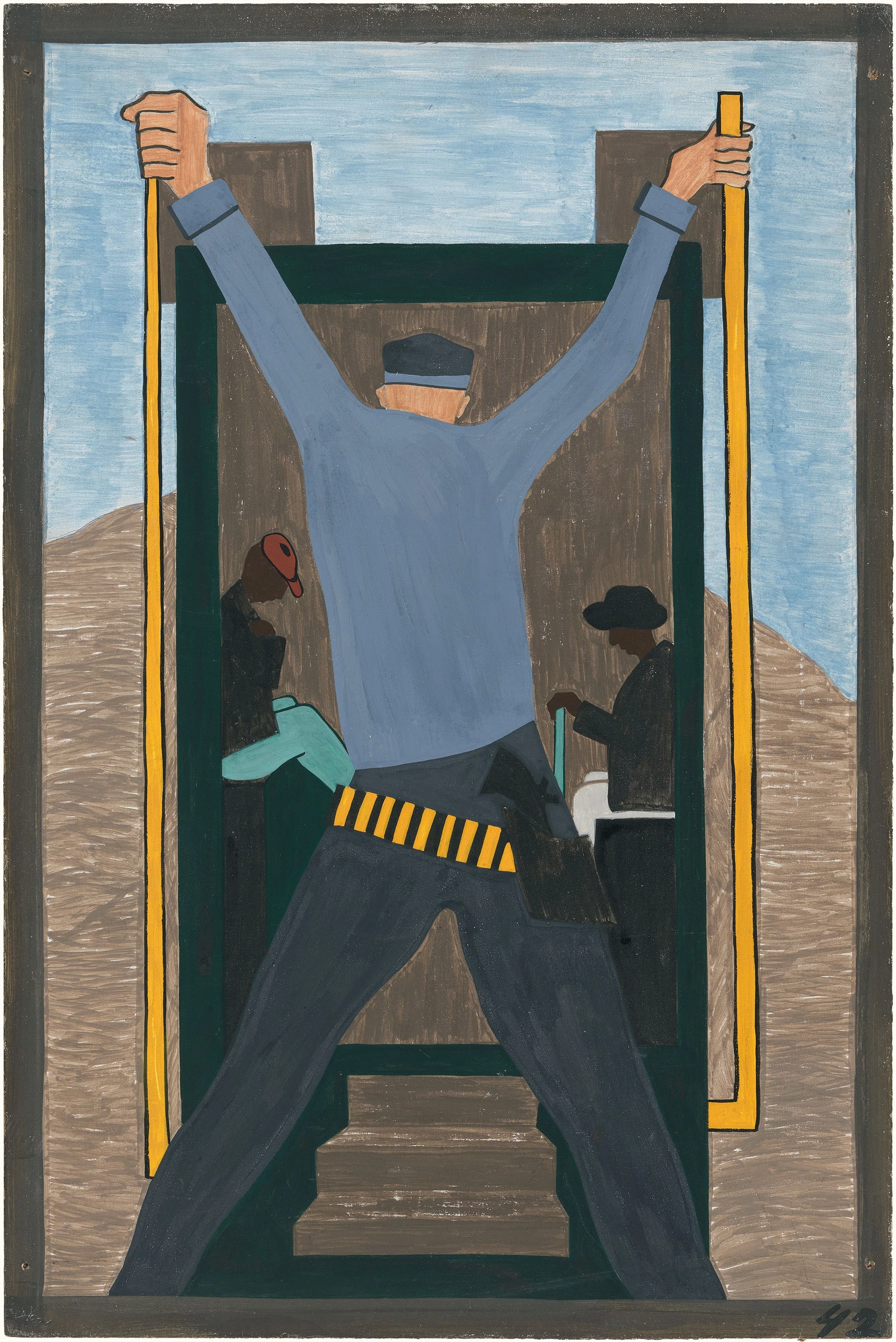
Migration Series No.42: To make it difficult for the migrants to leave, they were arrested en masse. They often missed their trains Jacob Lawrence, 1940 – 1941
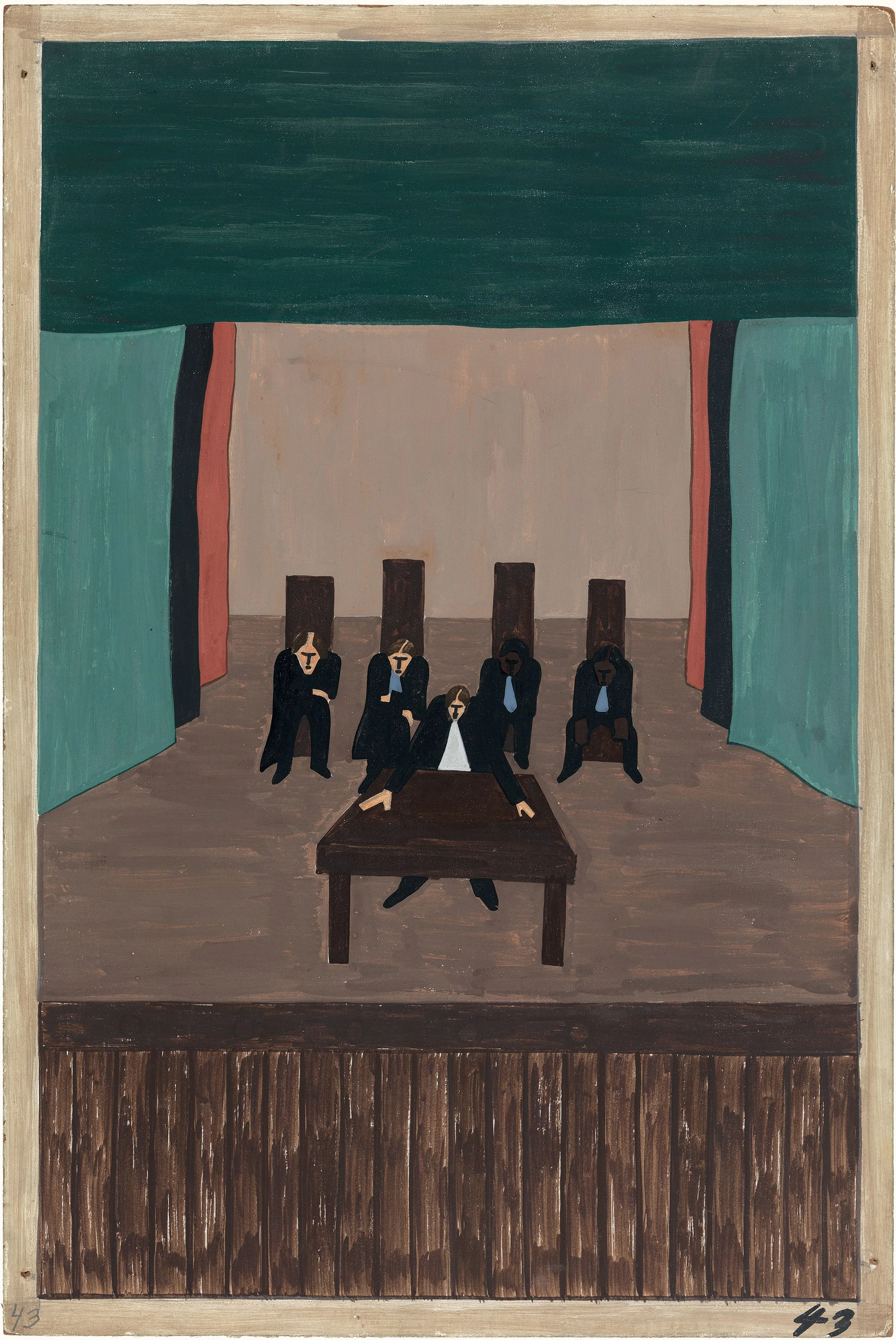
Migration Series No.43: In a few sections of the South leaders of both Black and White communities met to discuss ways of making the South a good place to live Jacob Lawrence, 1940 – 1941
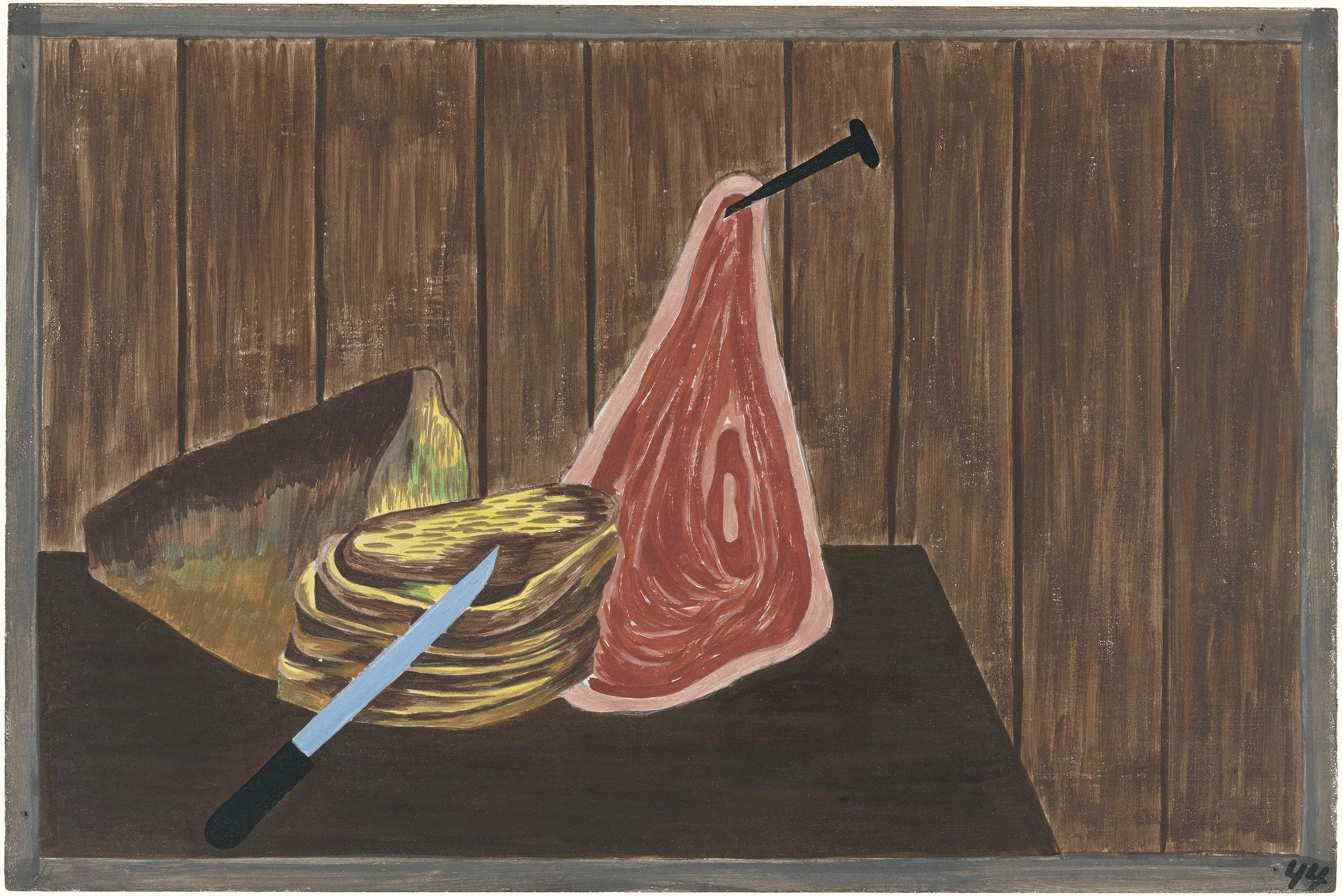
Migration Series No.44: But living conditions were better in the North Jacob Lawrence, 1940 – 1941
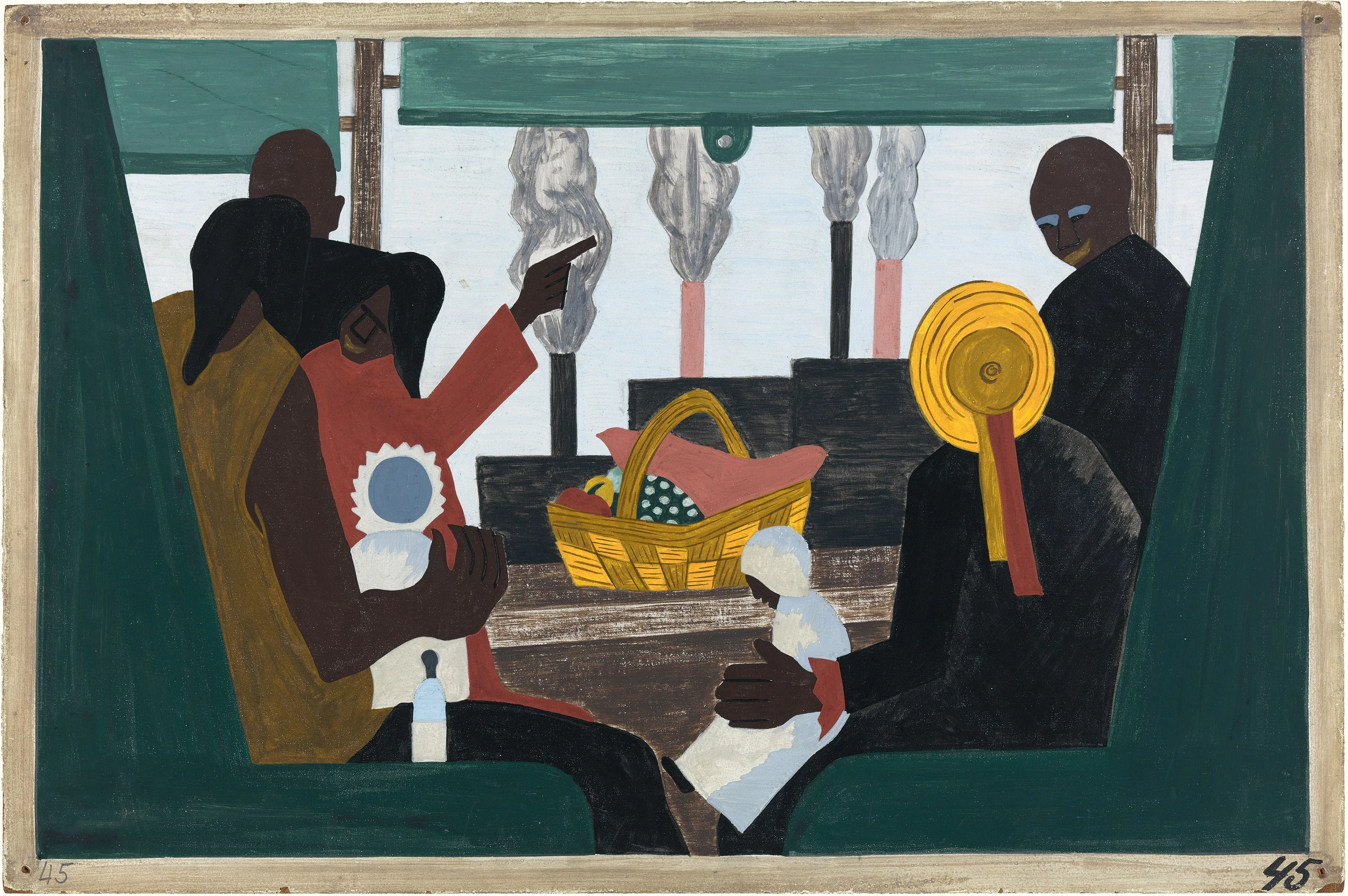
Migration Series No.45: The migrants arrived in Pittsburgh, one of the great industrial centers of the North Jacob Lawrence, 1940 – 1941
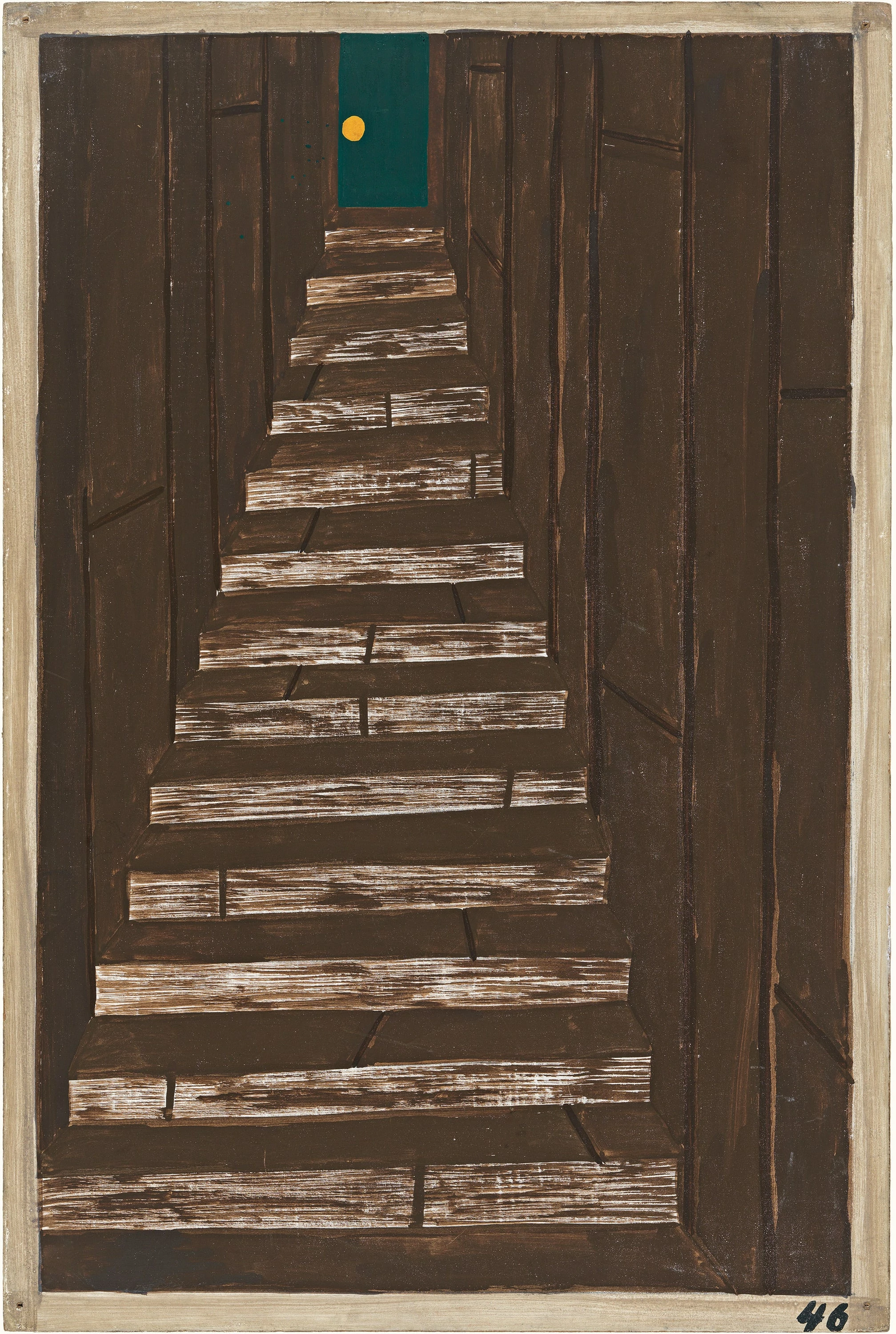
Migration Series No.46: Industries boarded their workers in unhealthy quarters. Labor camps were numerous Jacob Lawrence, 1940 – 1941
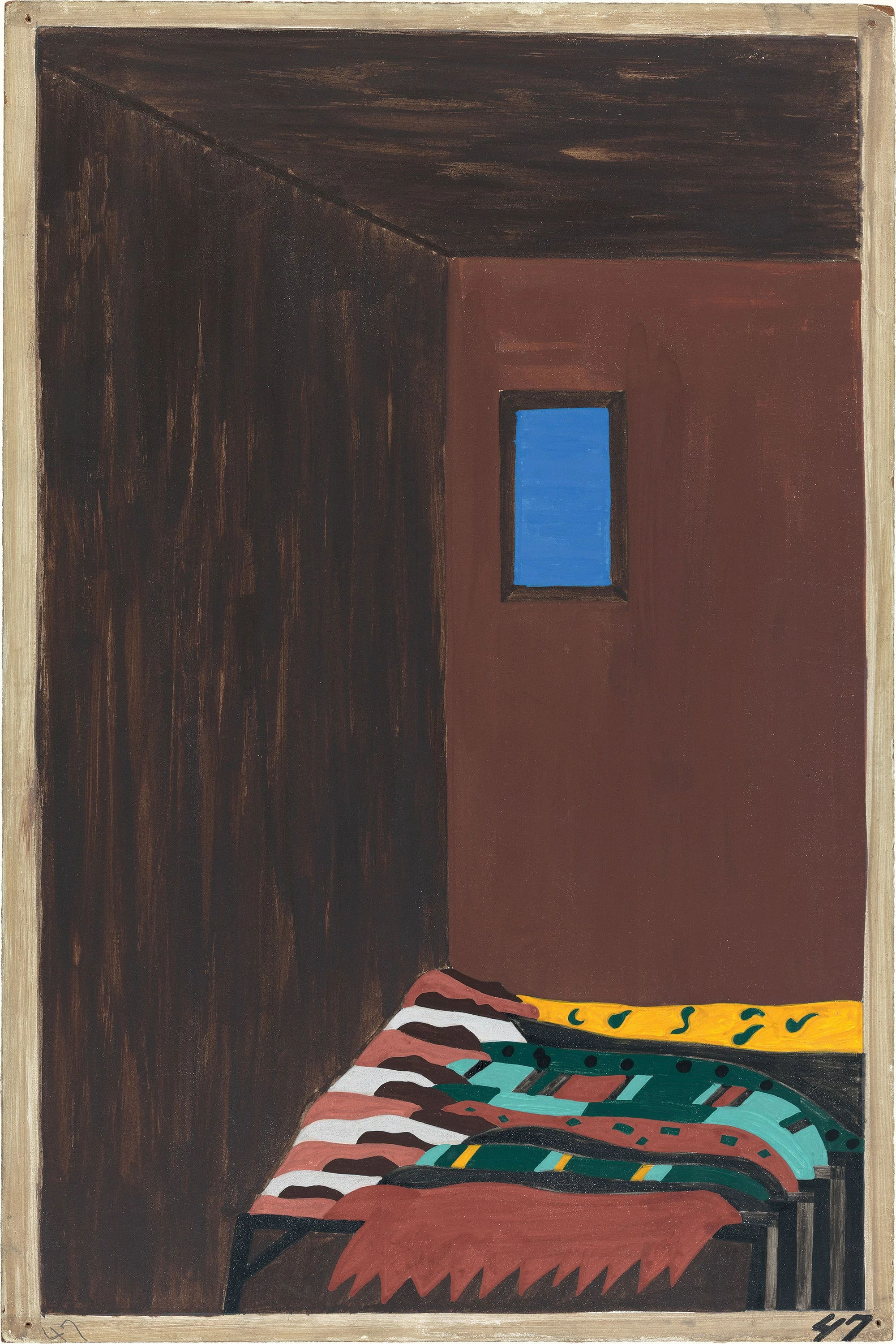
Migration Series No.47: As the migrant population grew, good housing became scarce. Workers were forced to live in overcrowded and dilapidated tenement houses Jacob Lawrence, 1940 – 1941
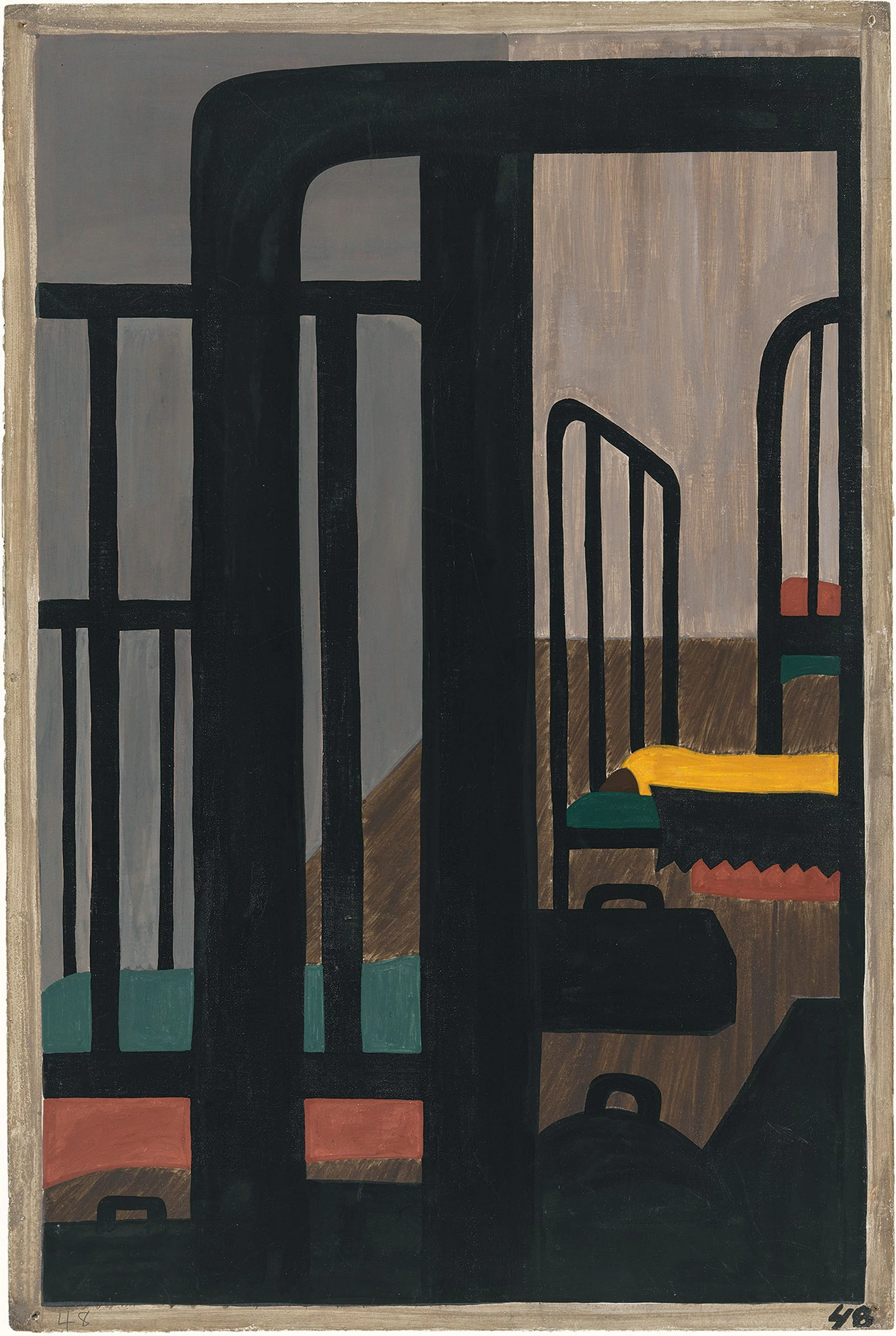
Migration Series No.48: Housing was a serious problem Jacob Lawrence, 1940 – 1941
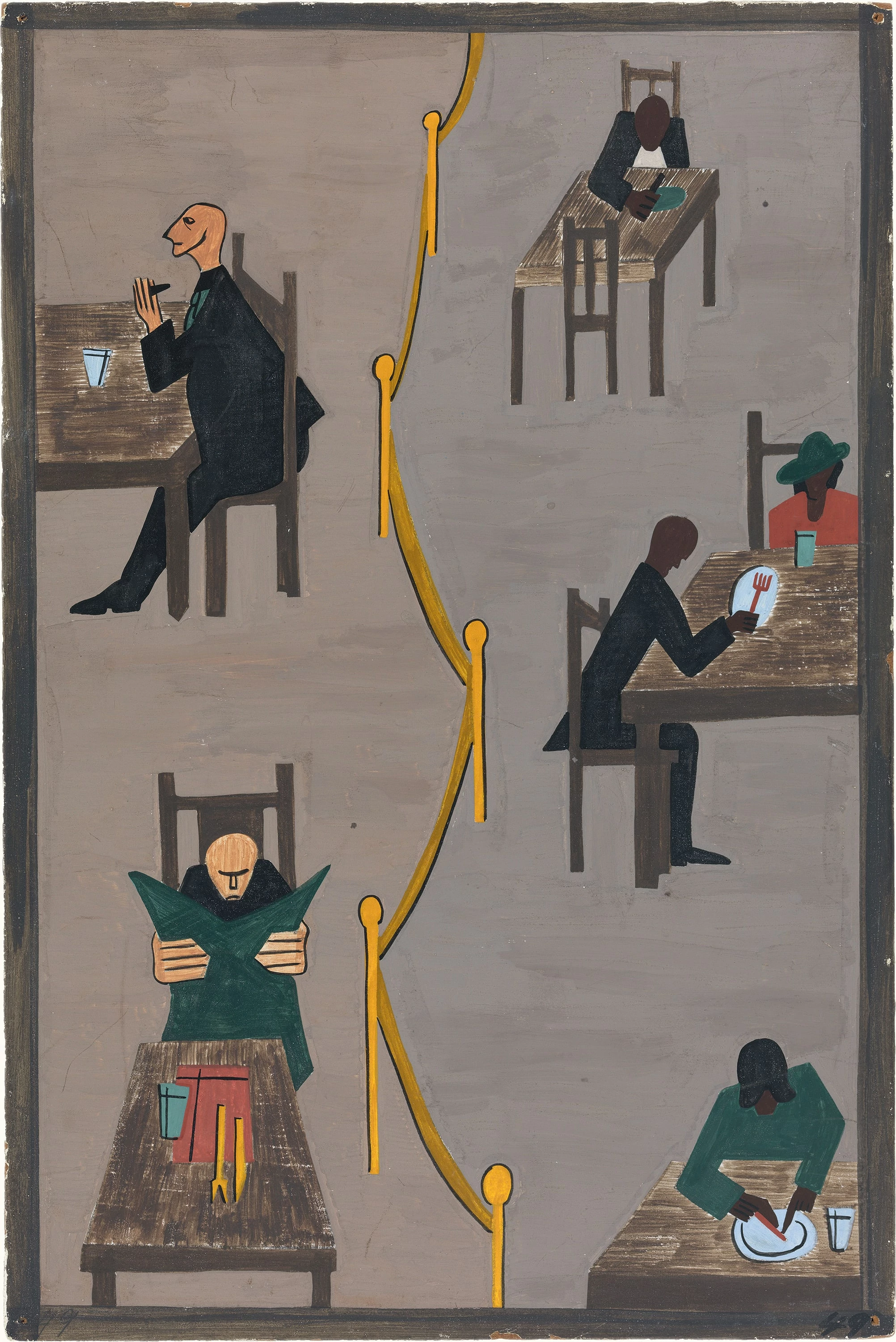
Migration Series No.49: They found discrimination in the North. It was a different kind Jacob Lawrence, 1940 – 1941
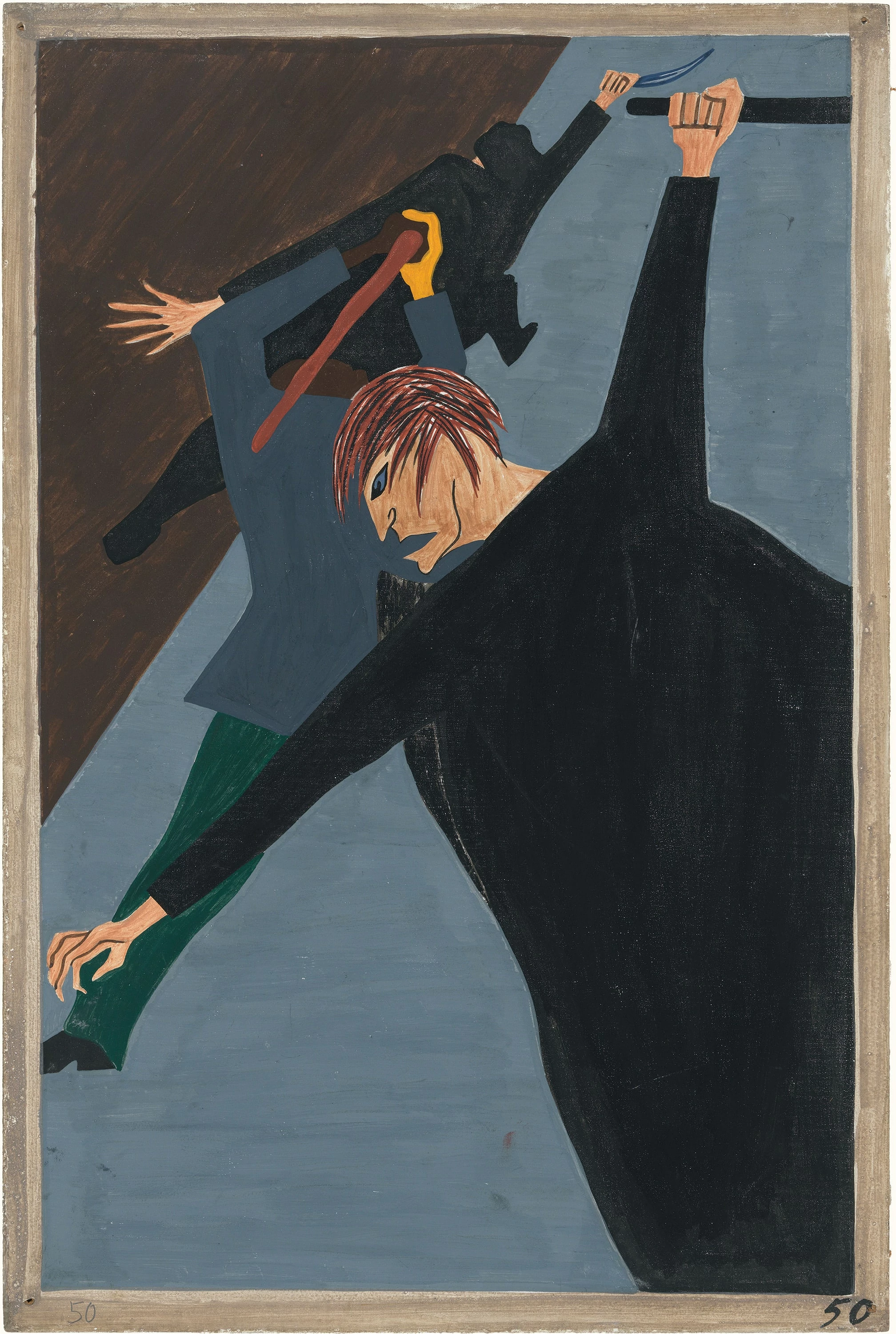
Migration Series No.50: Race riots were numerous. White workers were hostile toward the migrant who had been hired to break strikes Jacob Lawrence, 1940 – 1941
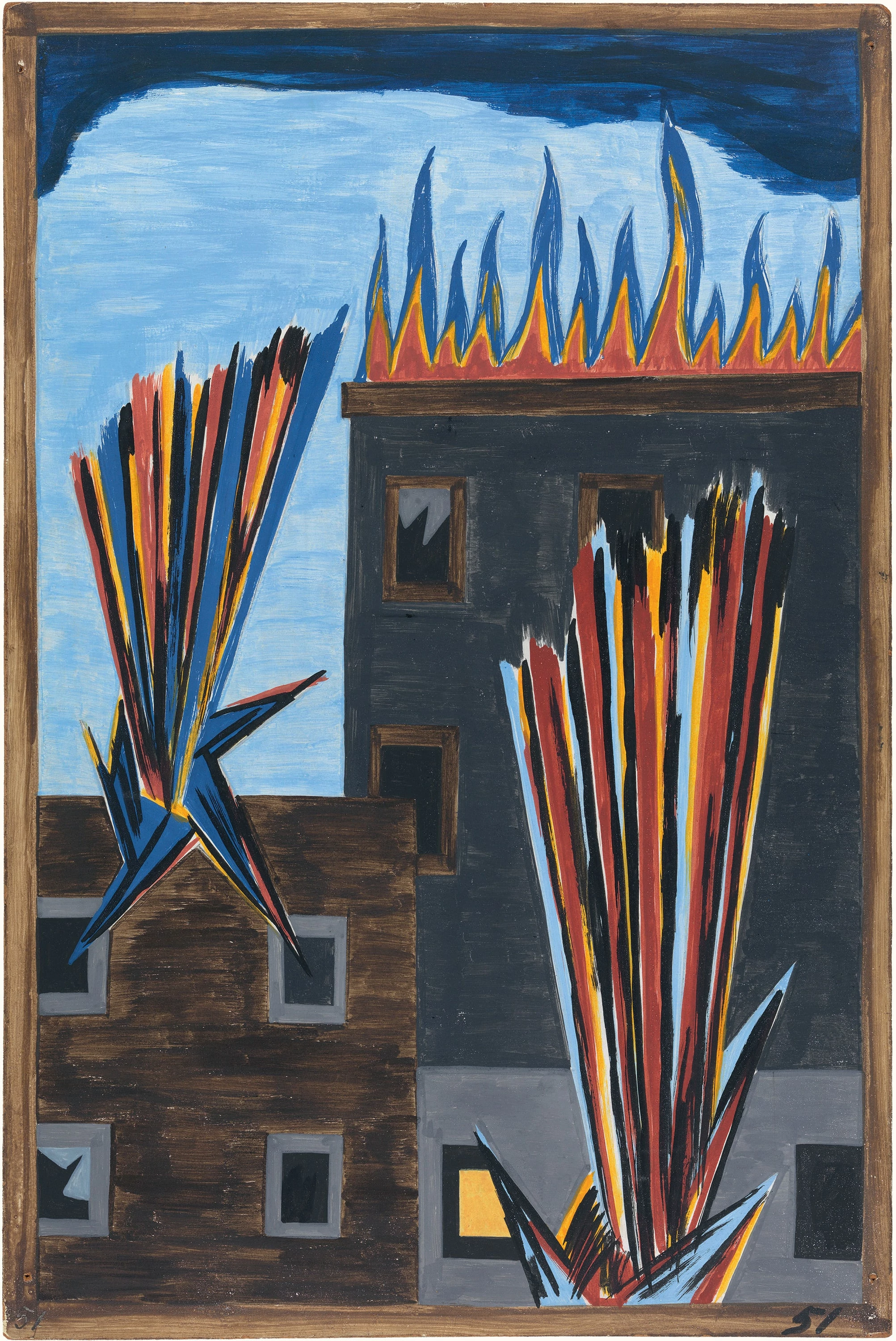
Migration Series No.51: African Americans seeking to find better housing attempted to move into new areas. This resulted in the bombing of their new homes Jacob Lawrence, 1940 – 1941
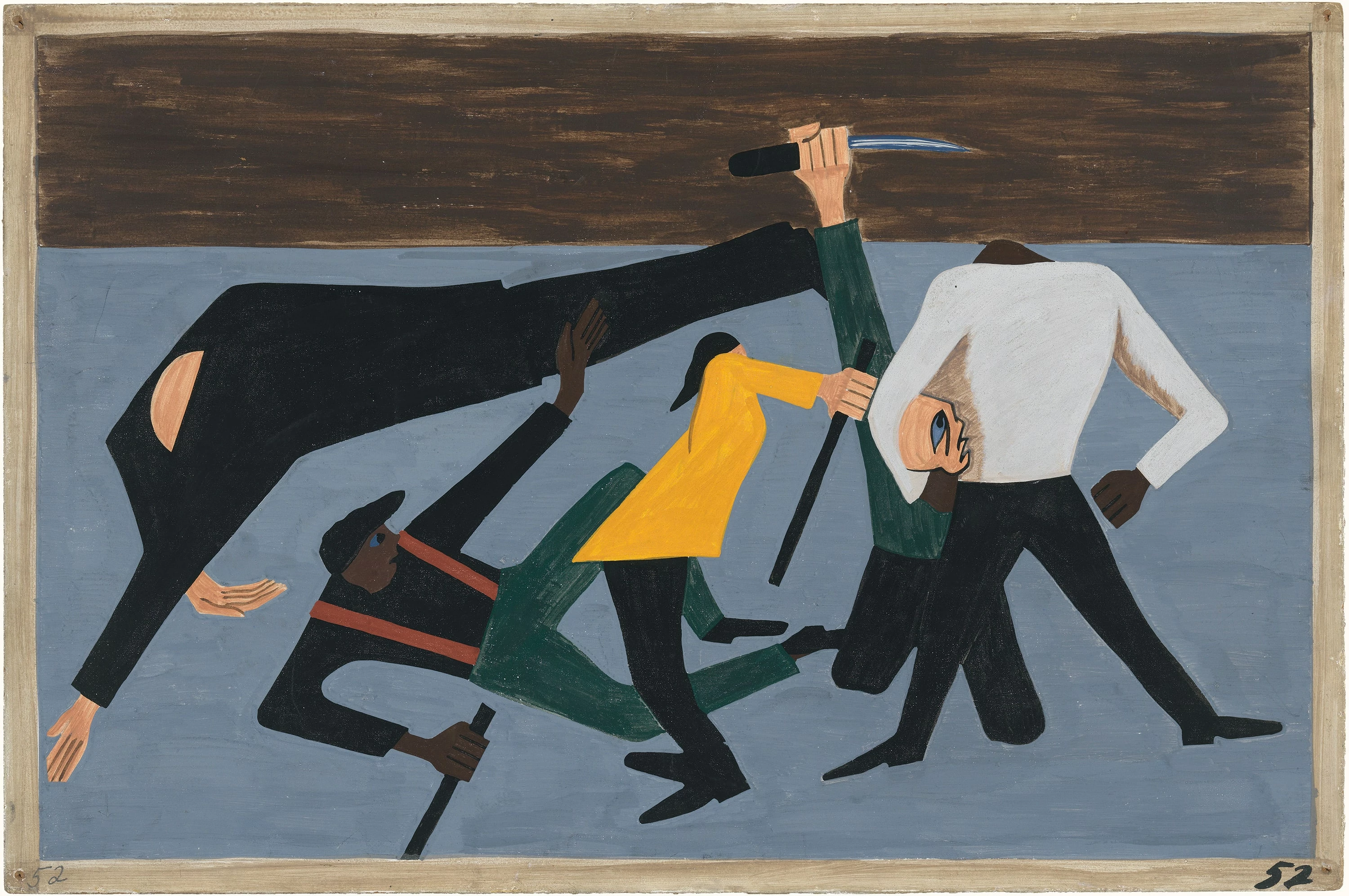
Migration Series No.52: One of the most violent race riots occurred in East St. Louis Jacob Lawrence, 1940 – 1941
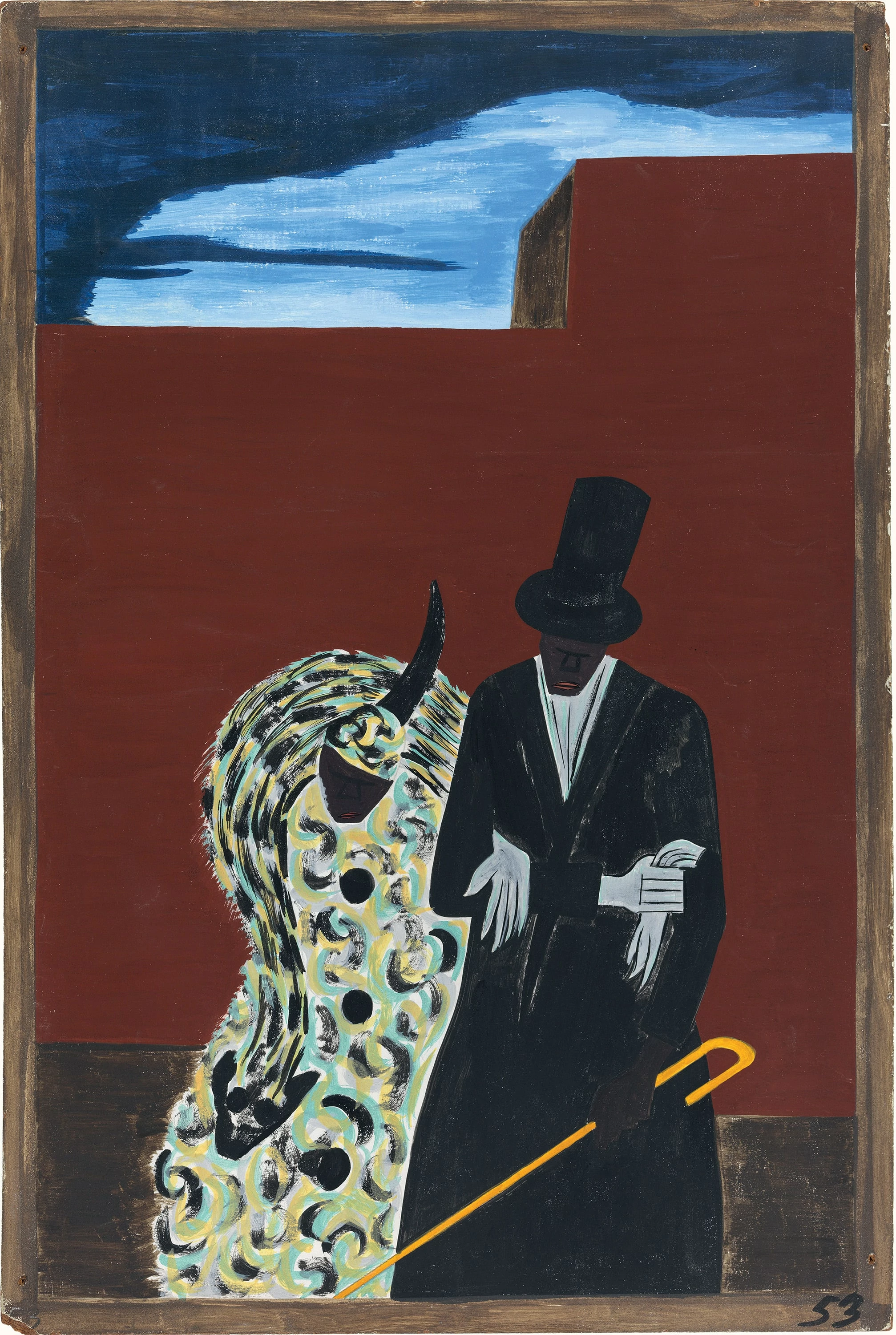
Migration Series No.53: African Americans, long-time residents of northern cities, met the migrants with aloofness and disdain Jacob Lawrence, 1940 – 1941
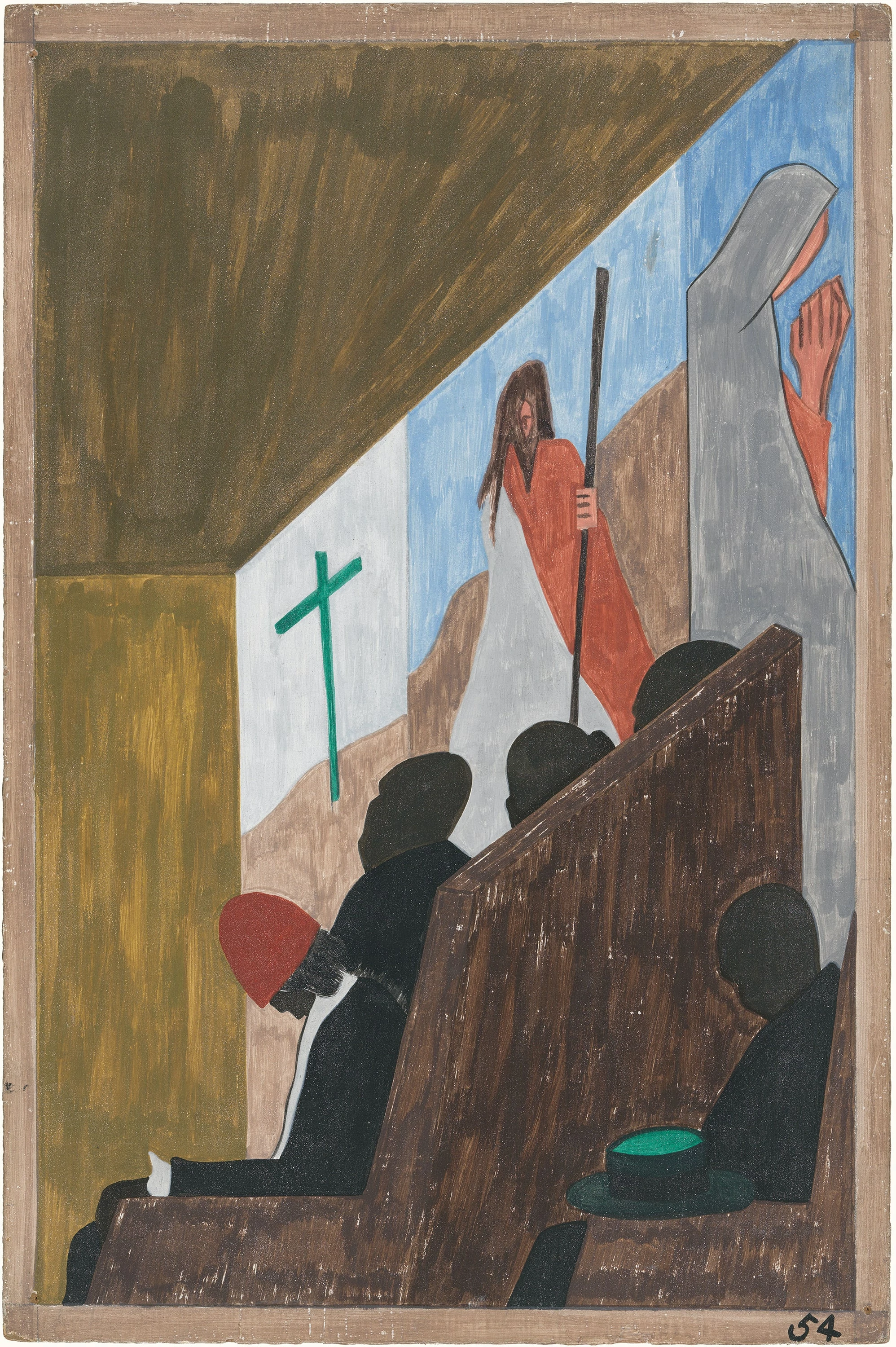
Migration Series No.54: For the migrants, the church was the center of life Jacob Lawrence, 1940 – 1941
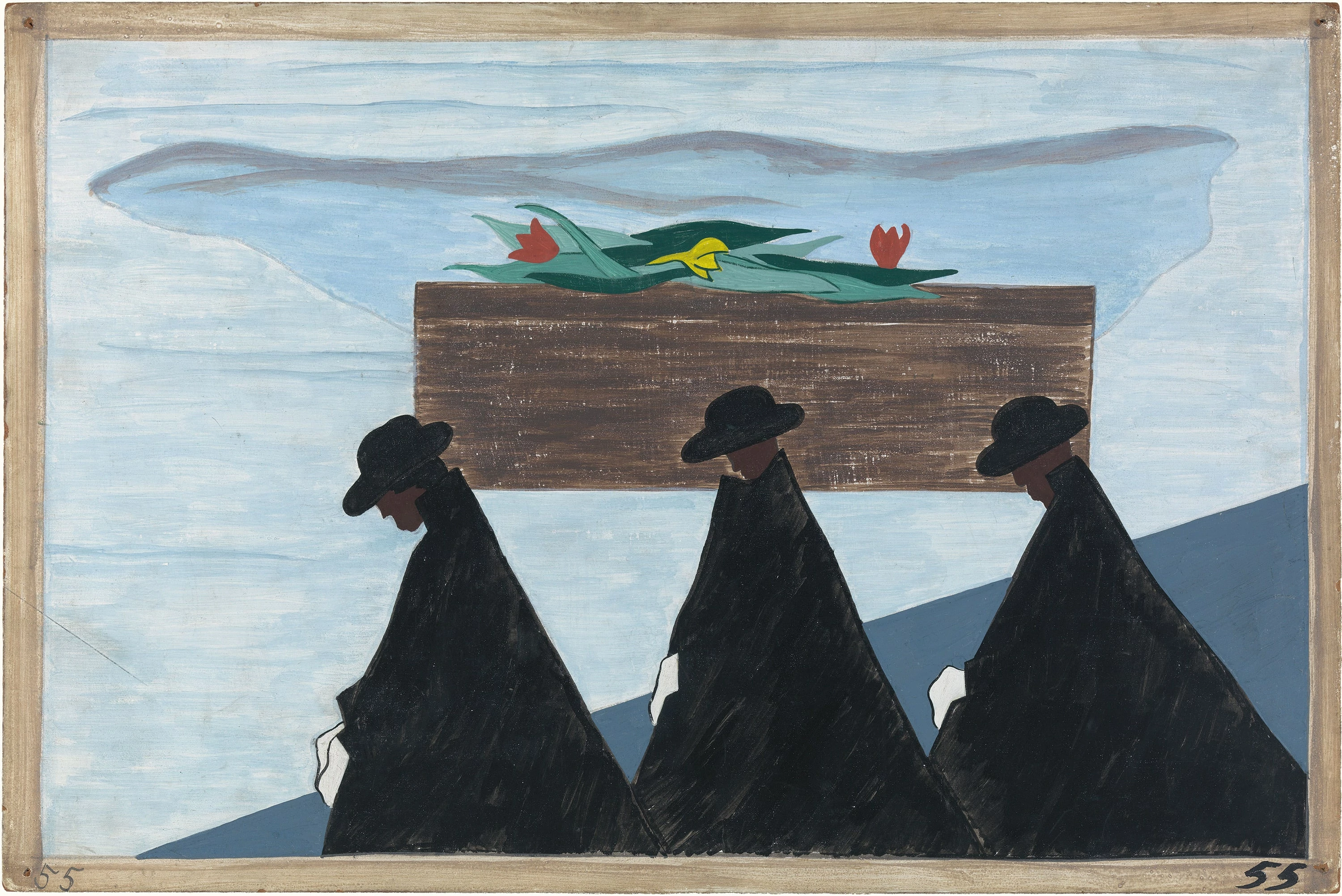
Migration Series No.55: The migrants, having moved suddenly into a crowded and unhealthy environment, soon contracted tuberculosis. The death rate rose Jacob Lawrence, 1940 – 1941
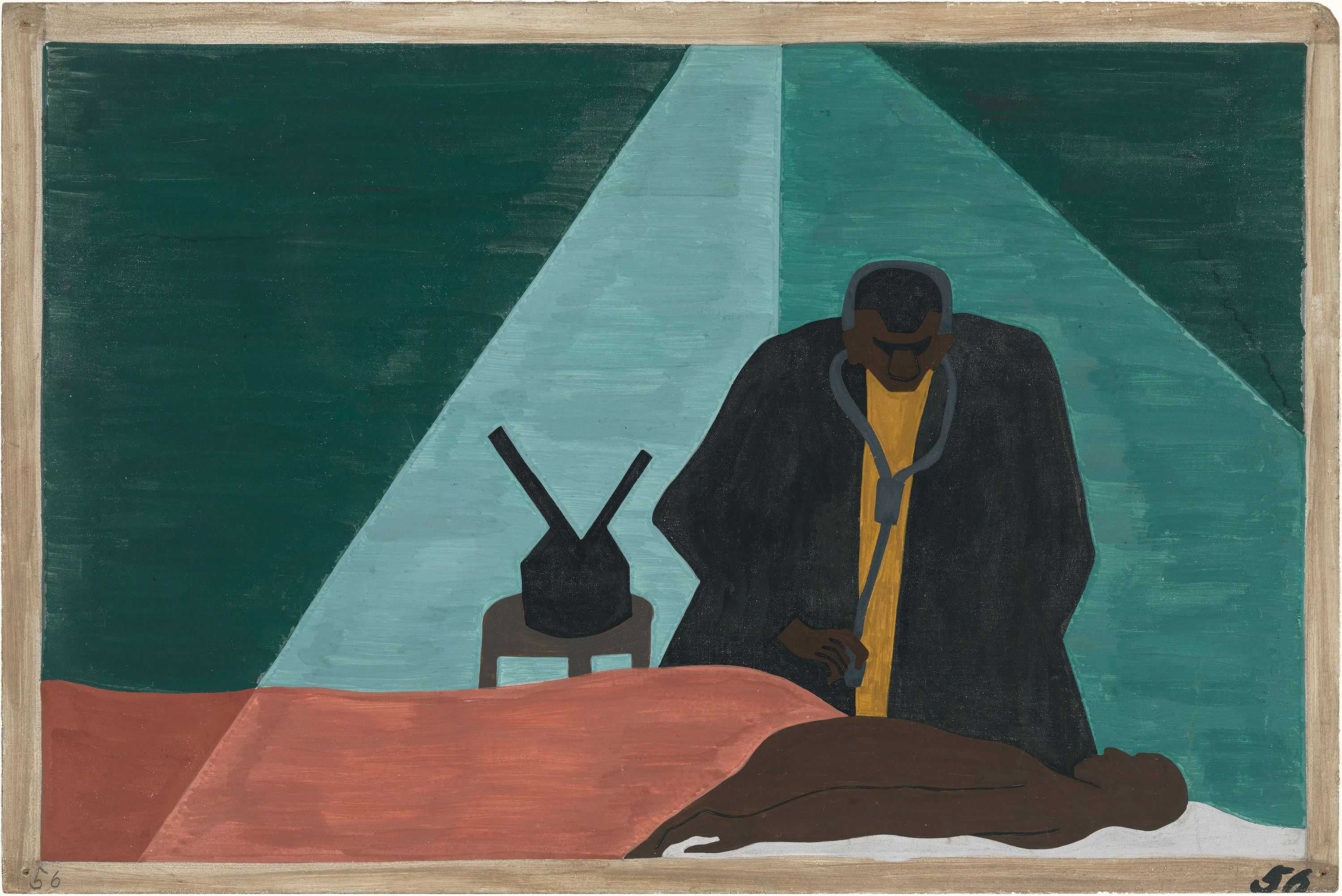
Migration Series No.56: The African American professionals were forced to follow their clients in order to make a living Jacob Lawrence, 1940 – 1941
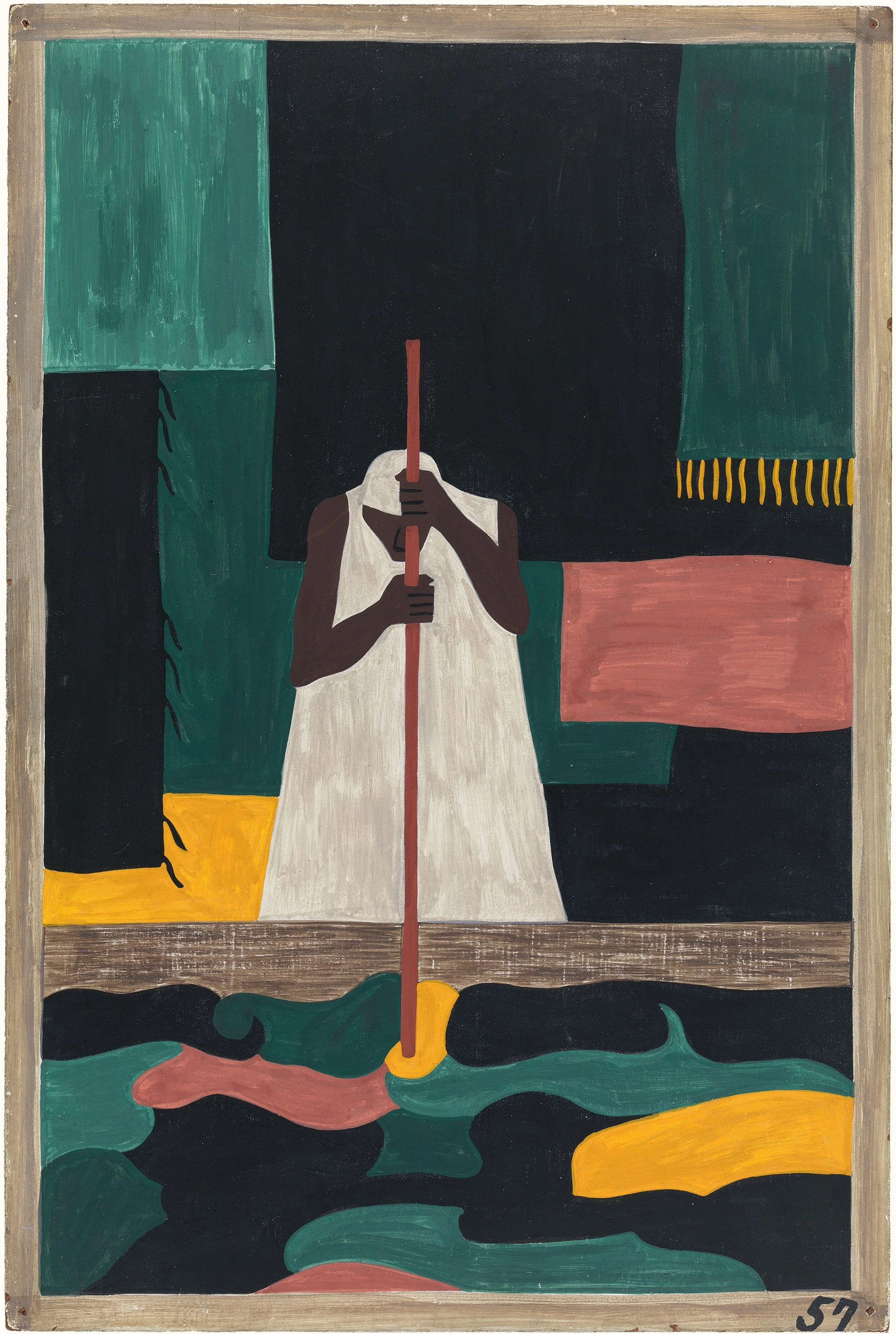
Migration Series No.57: The female workers were the last to arrive north Jacob Lawrence, 1940 – 1941
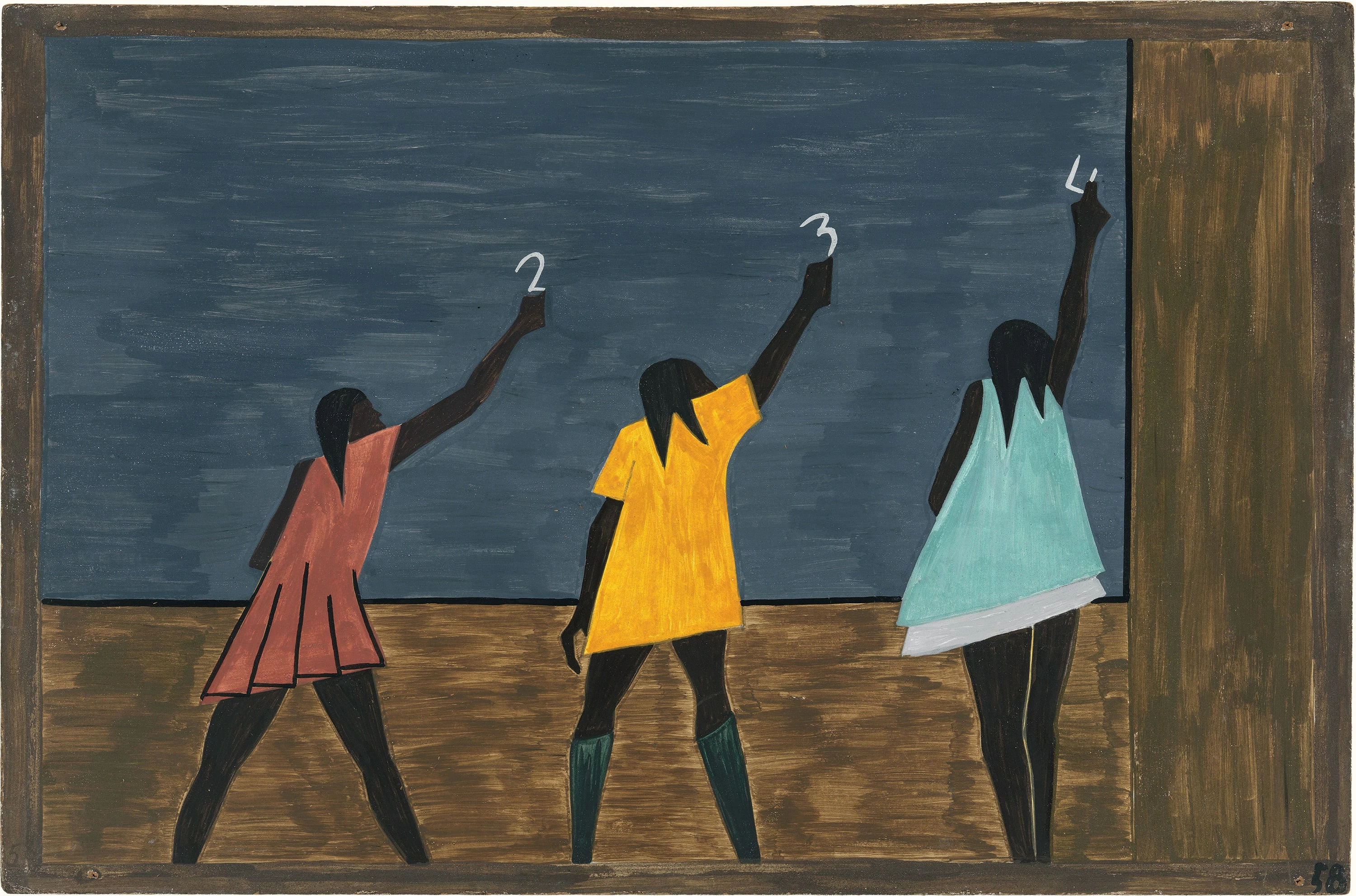
Migration Series No.58: In the North the African American had more educational opportunities Jacob Lawrence, 1940 – 1941
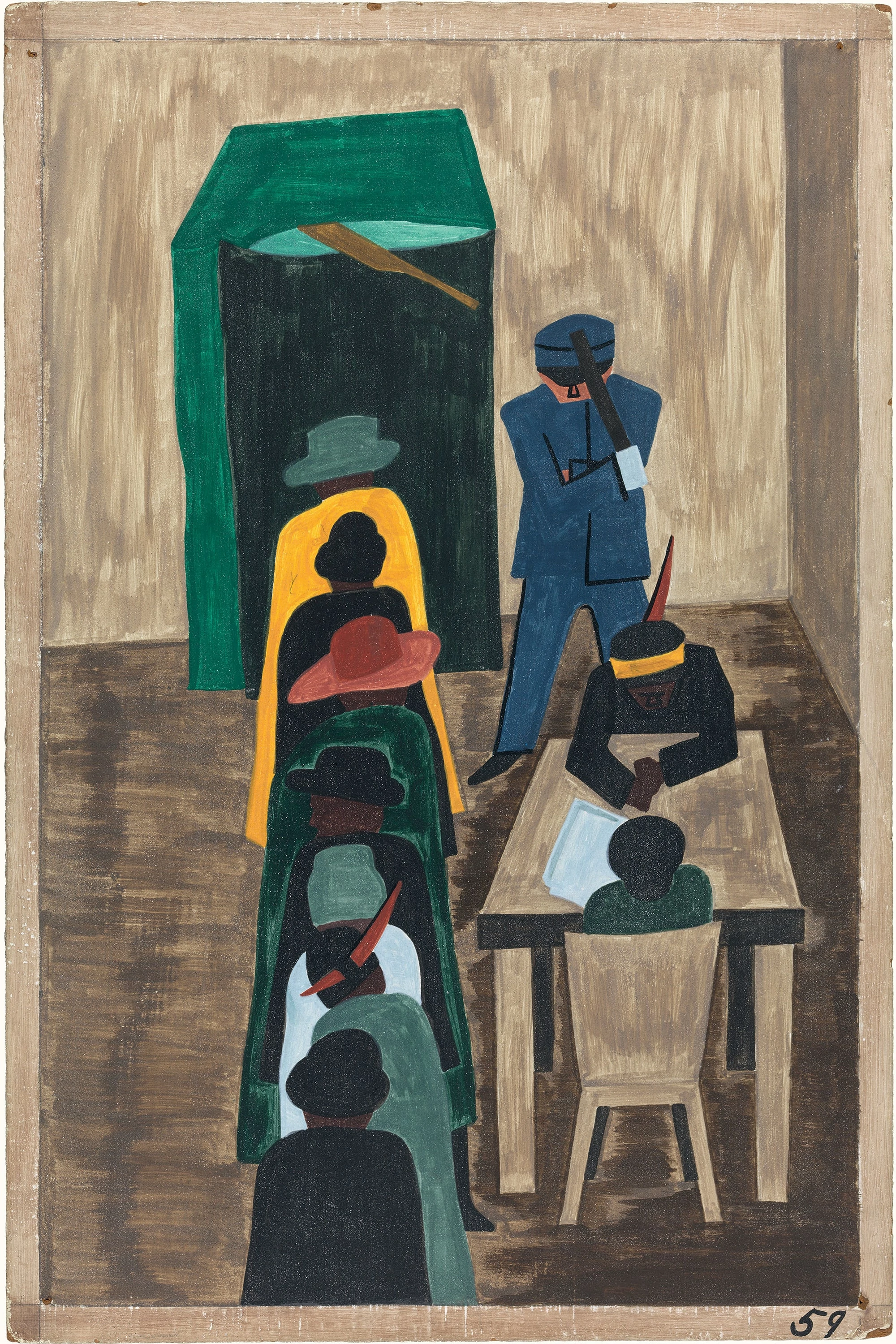
Migration Series No.59: In the North they had the freedom to vote Jacob Lawrence, 1940 – 1941
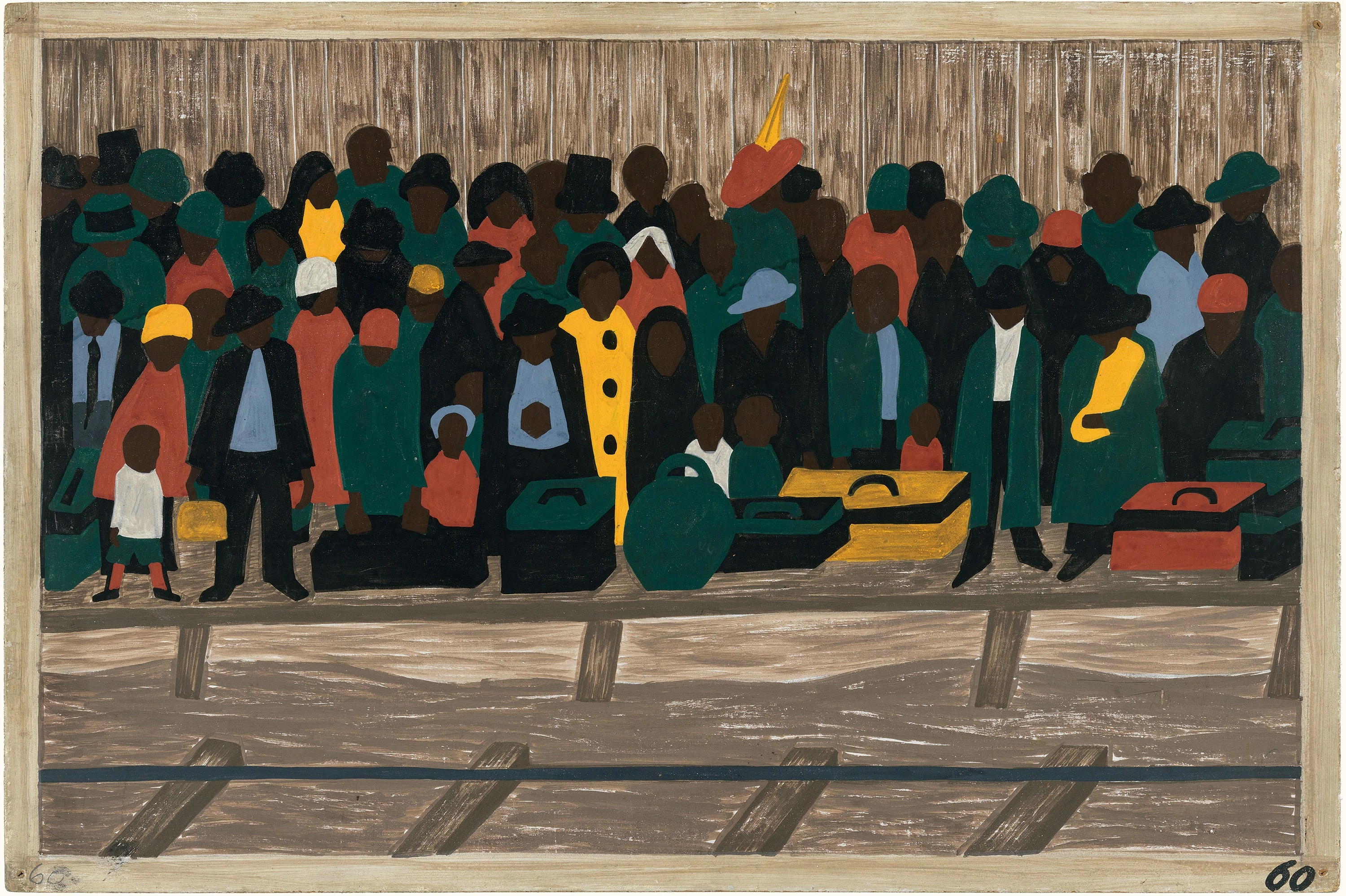
Migration Series No.60: And the migrants kept coming Jacob Lawrence, 1940 – 1941
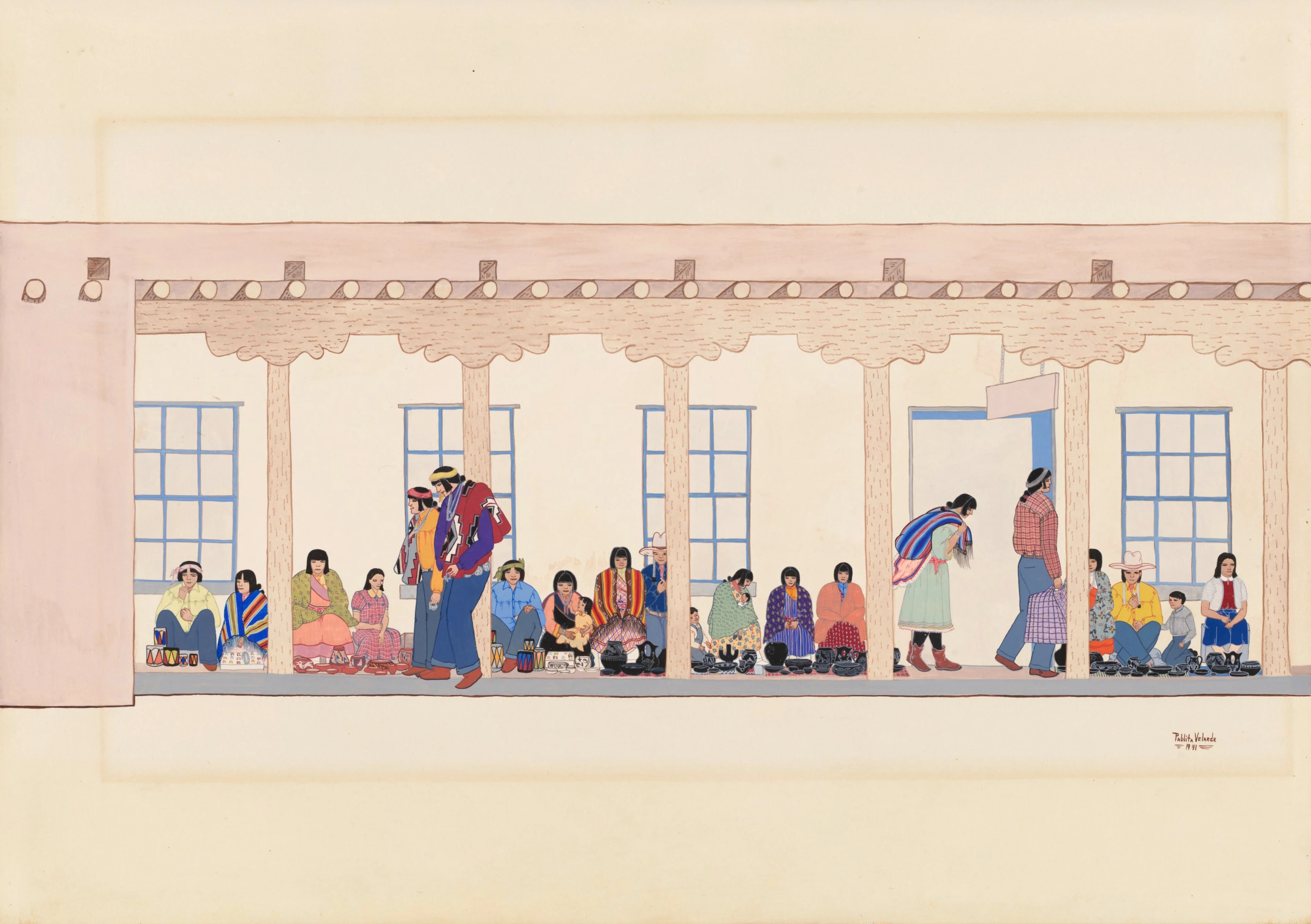
Pueblo Craftsmen, Palace of the Governor Santa Fe Pablita Velarde, 1941
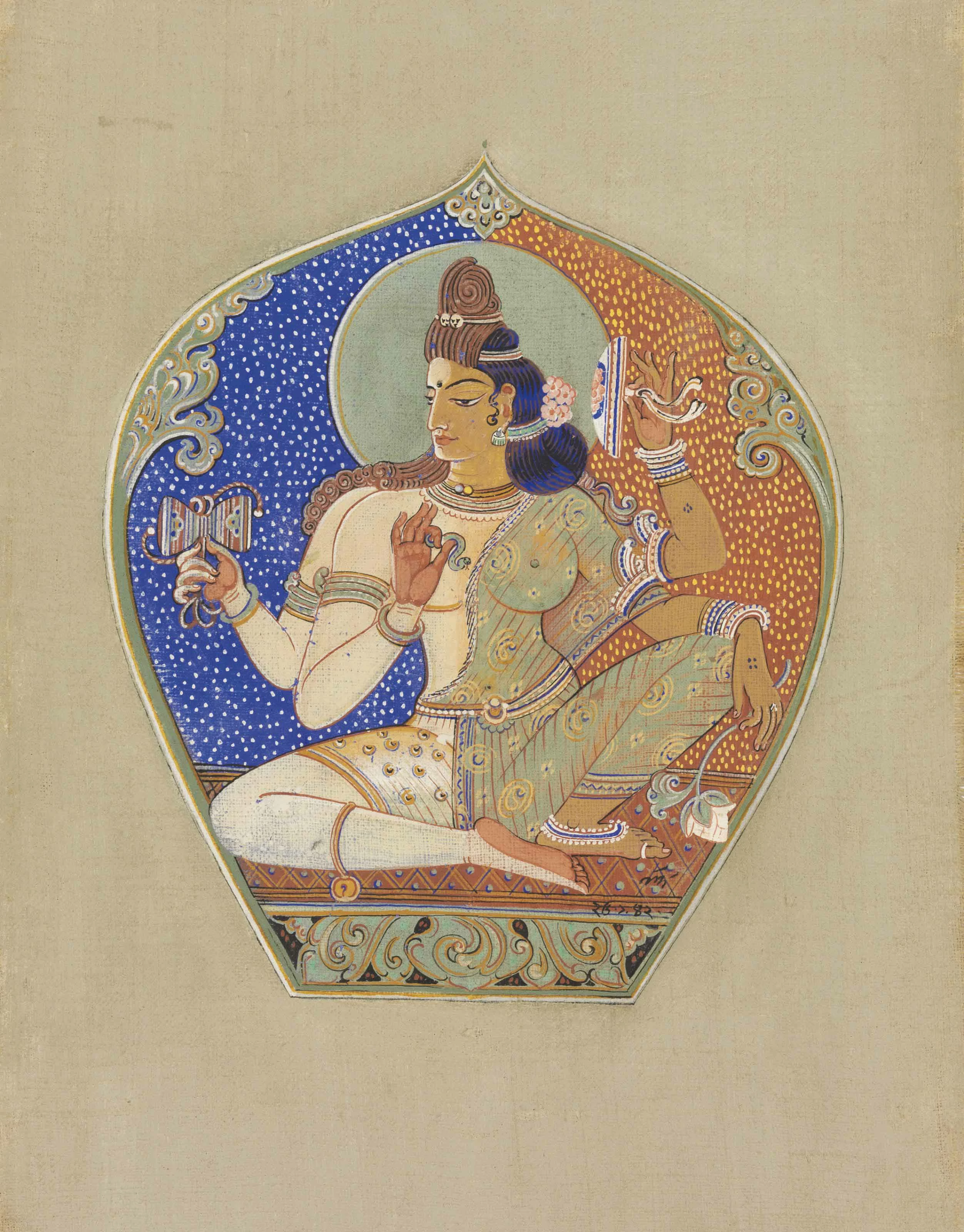
Ardhanarishvara Nandalal Bose, 1942
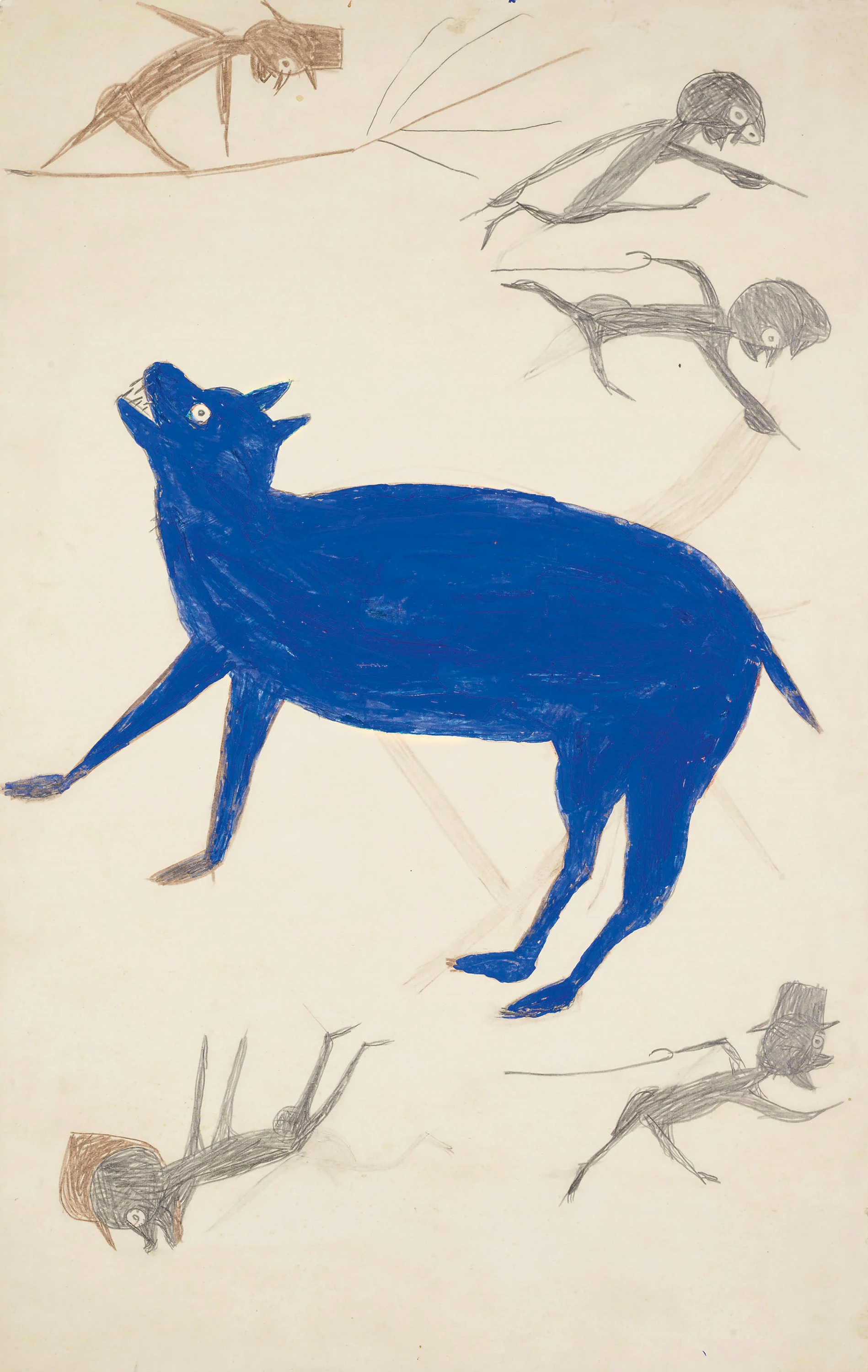
Blue Animal with Five Figures Bill Traylor, 1939 – 1942
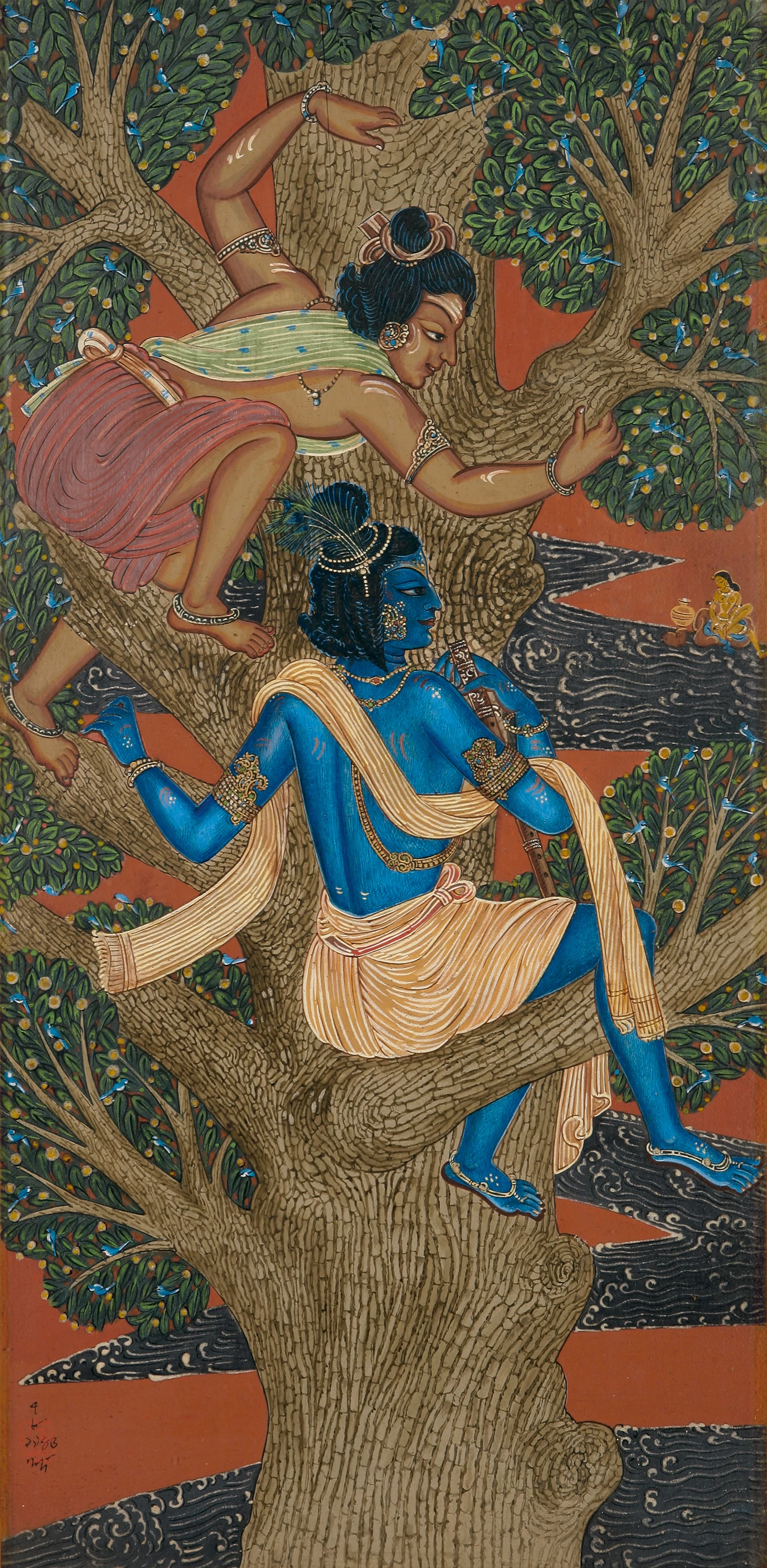
Krishna and Subal First Meeting Radha Nandalal Bose, 1945
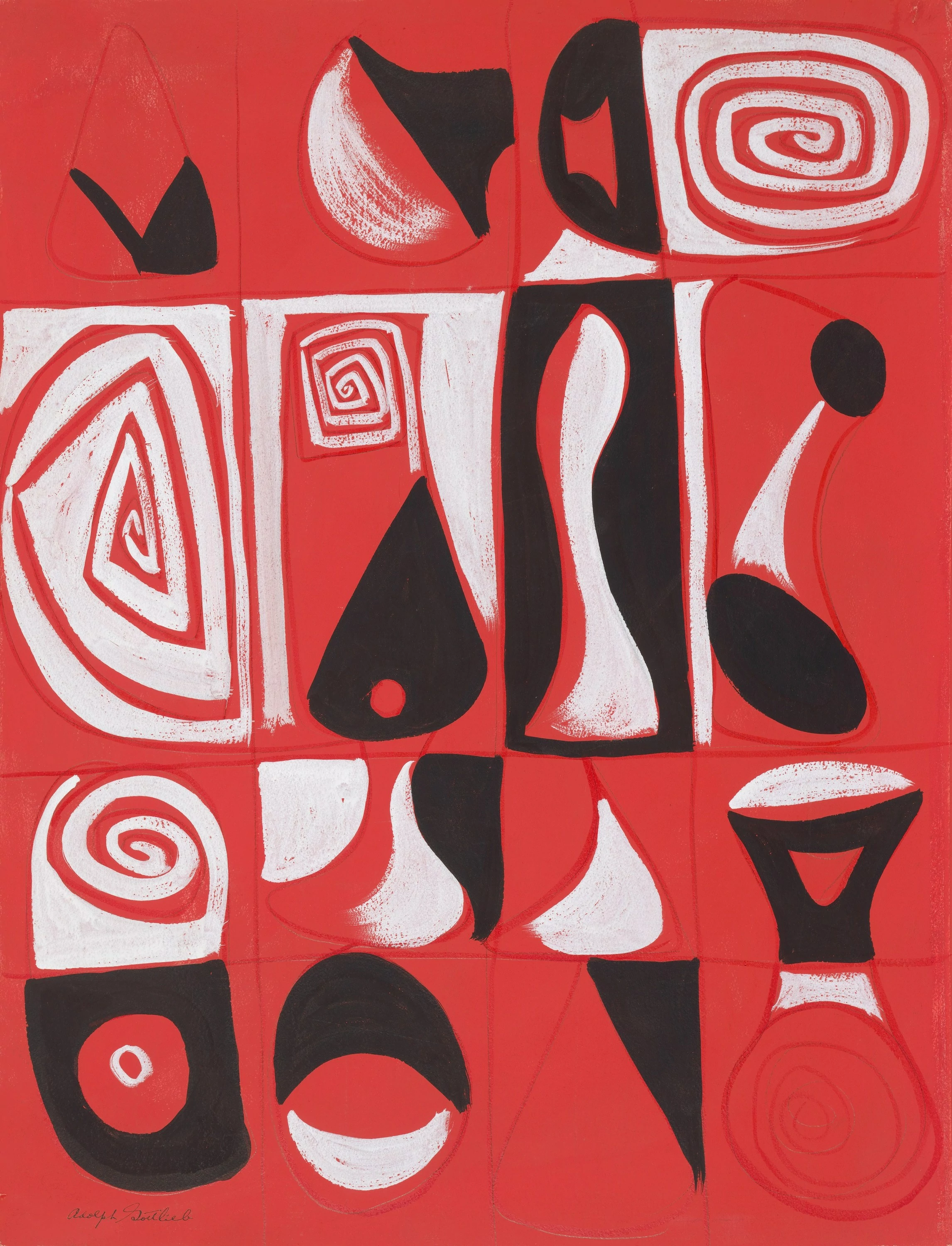
Sleep Mask Adolph Gottlieb, 1945
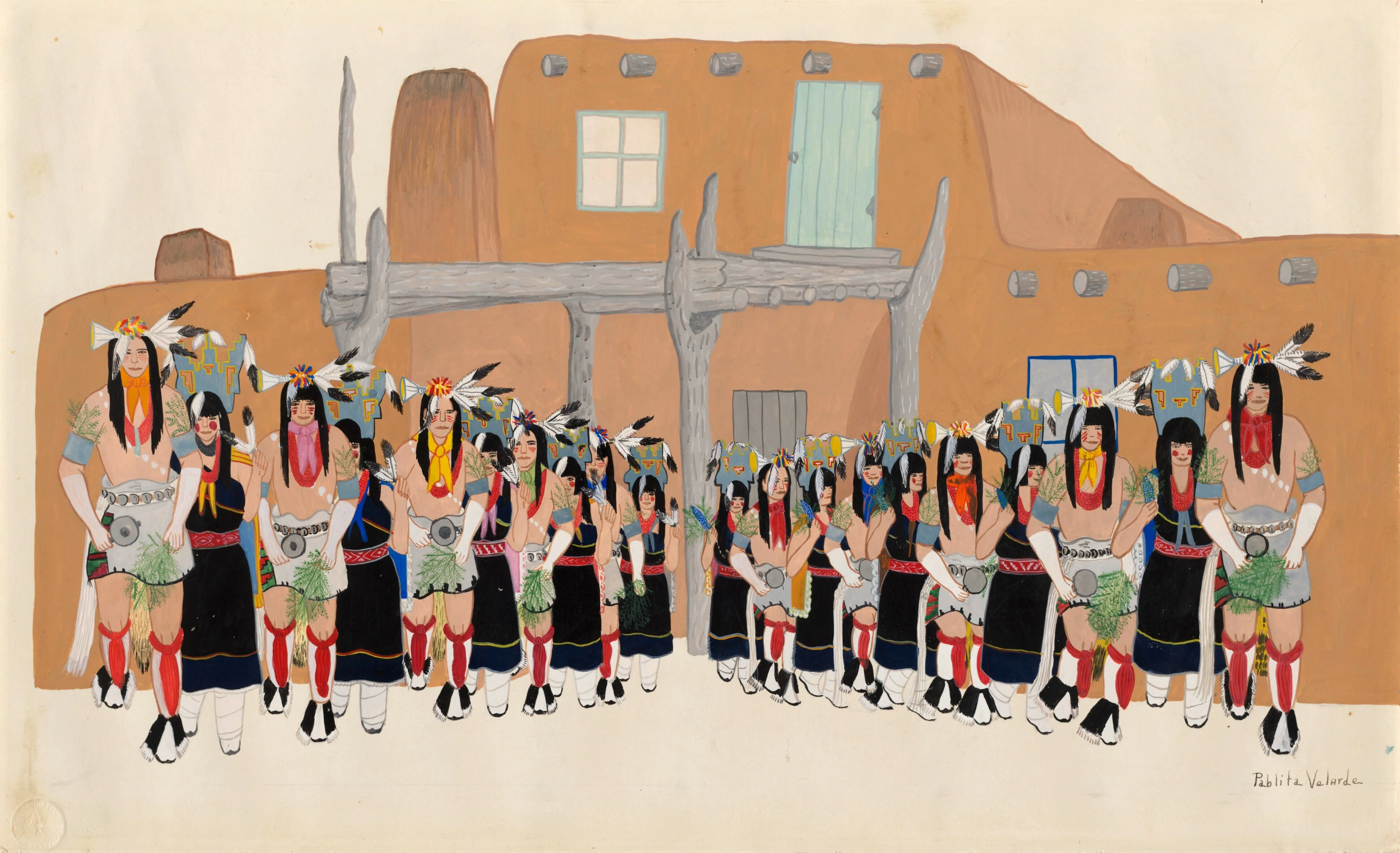
Ceremonial Dance Pablita Velarde, 1950
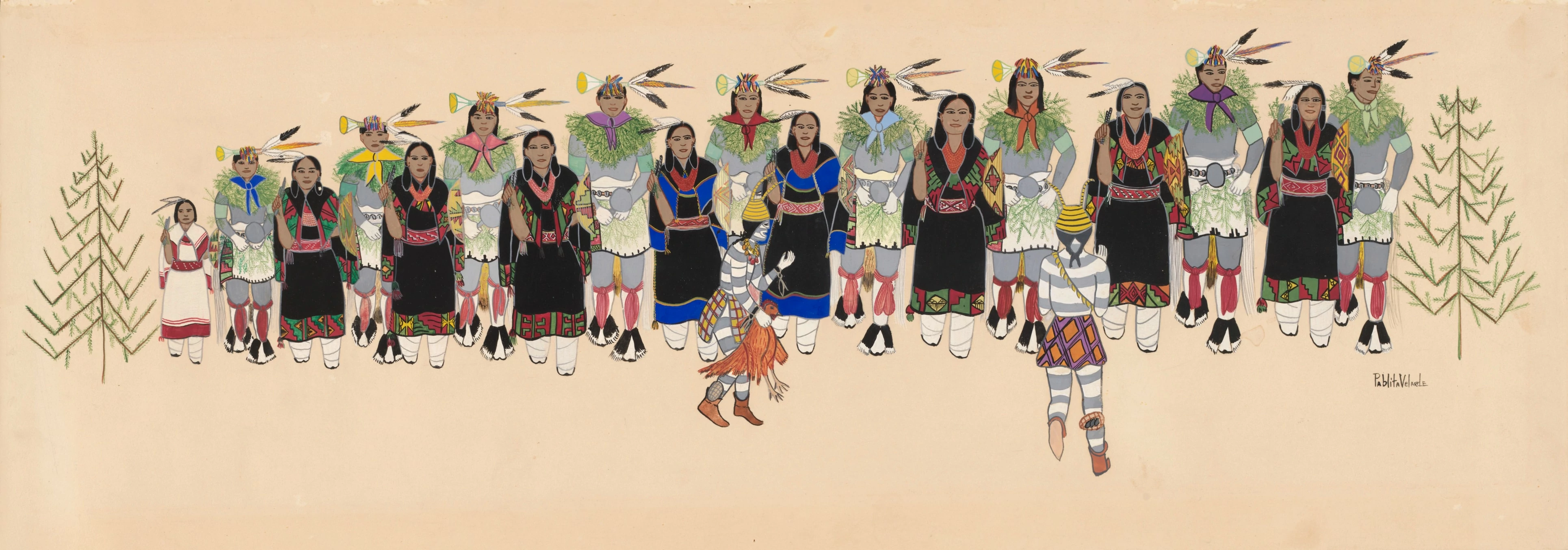
Santa Clara Basket Dance Pablita Velarde, 1950
